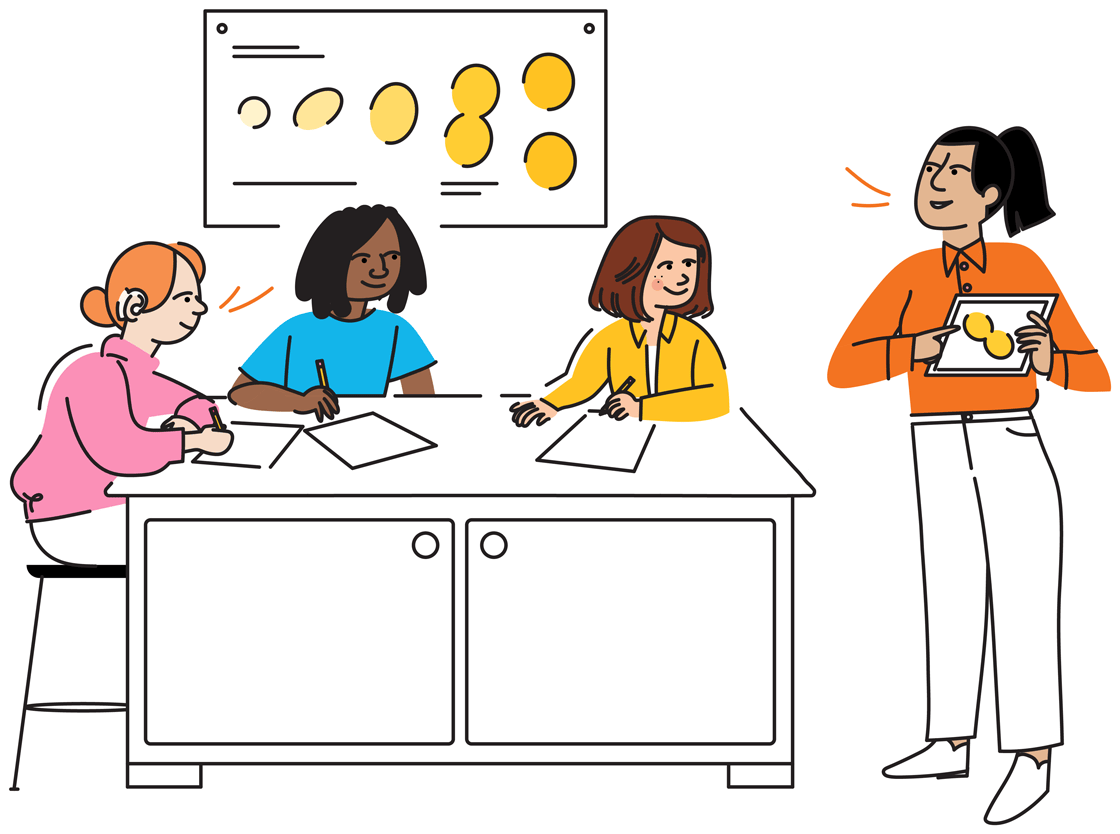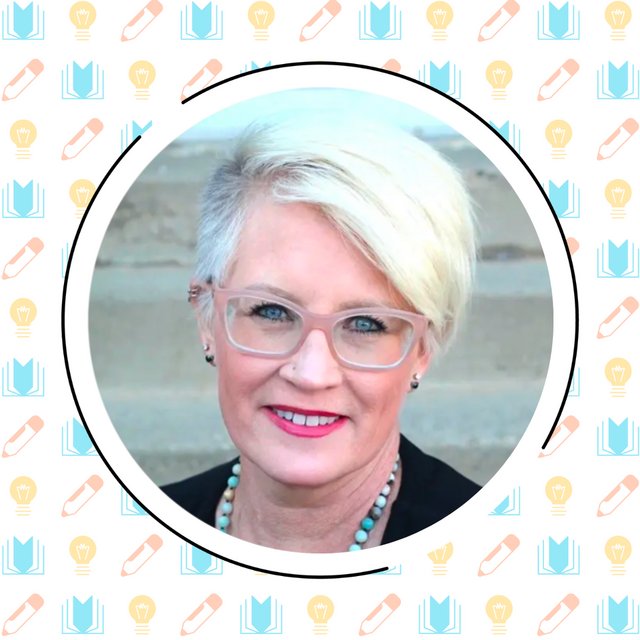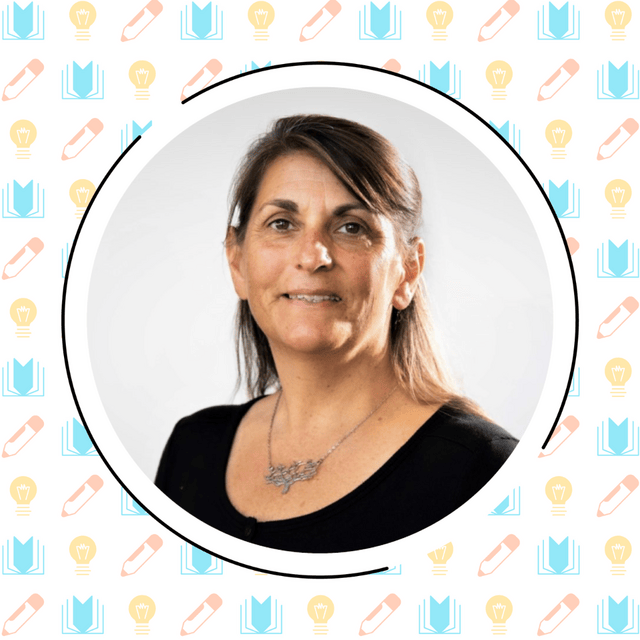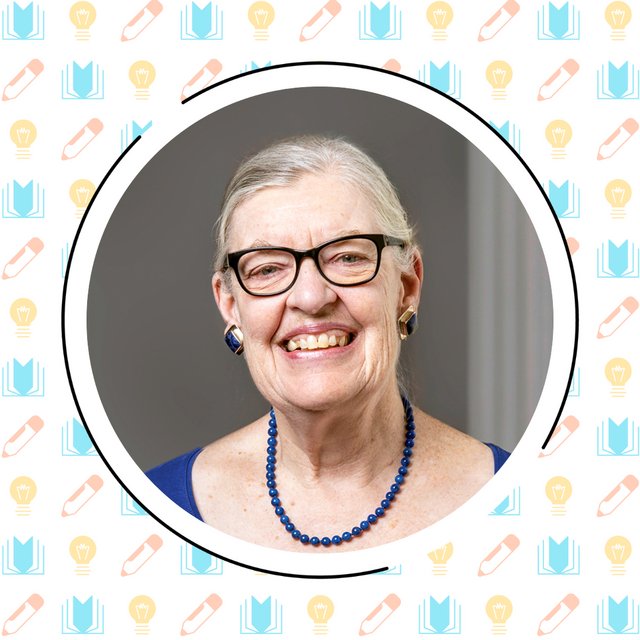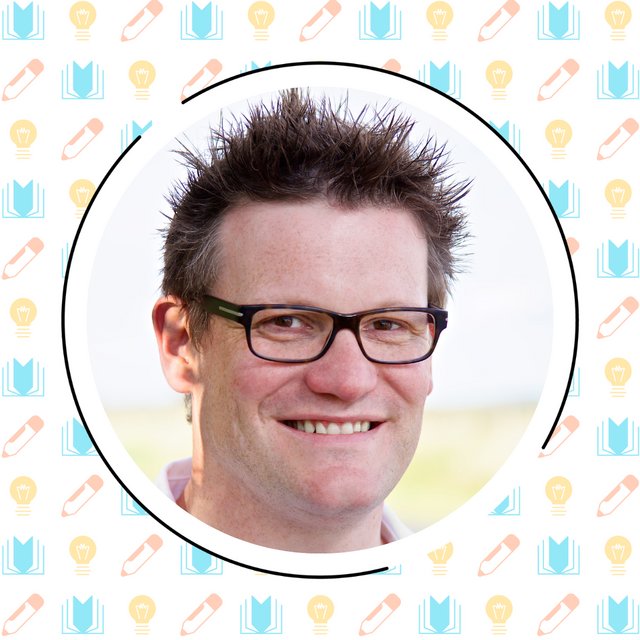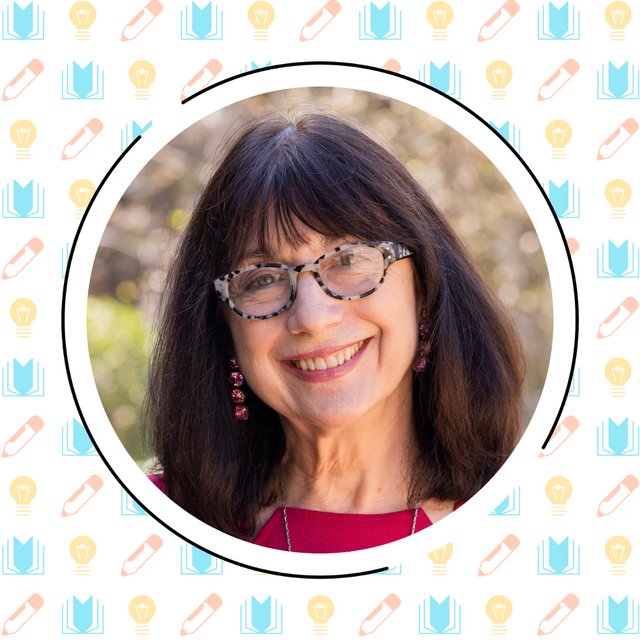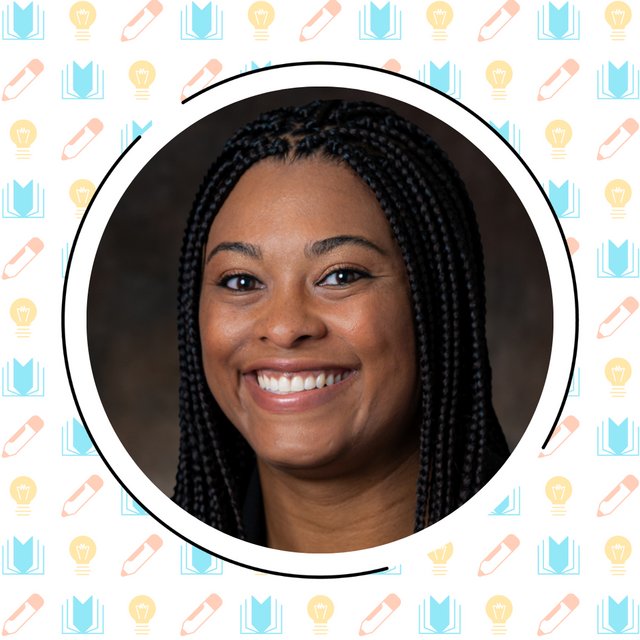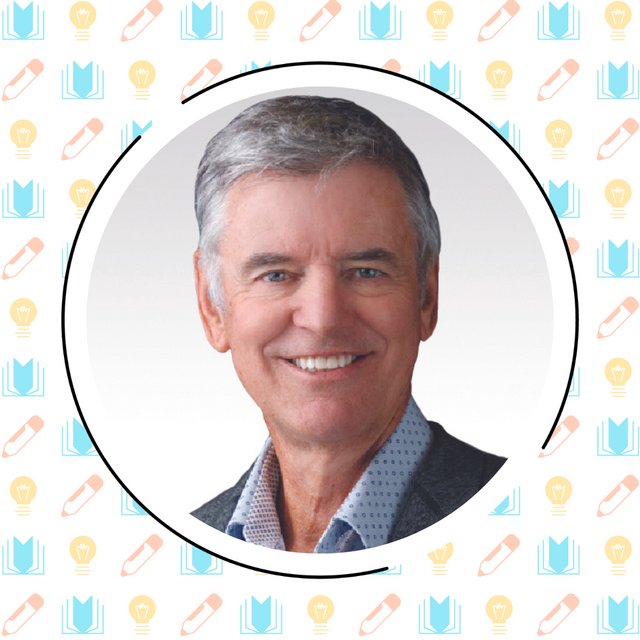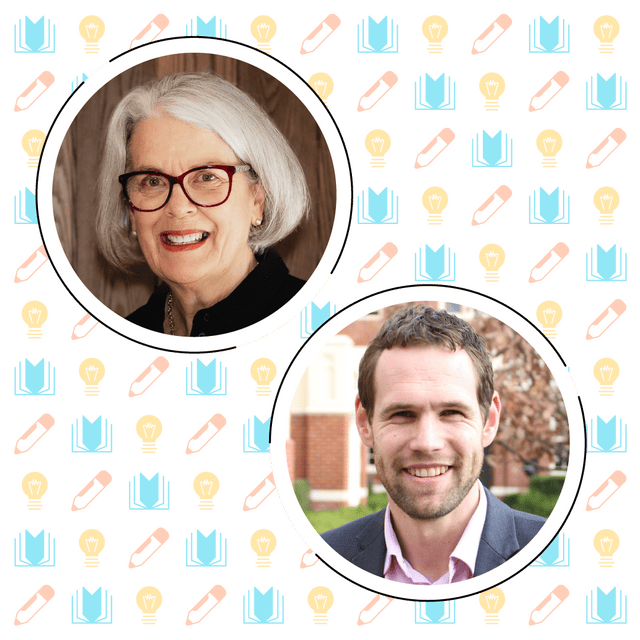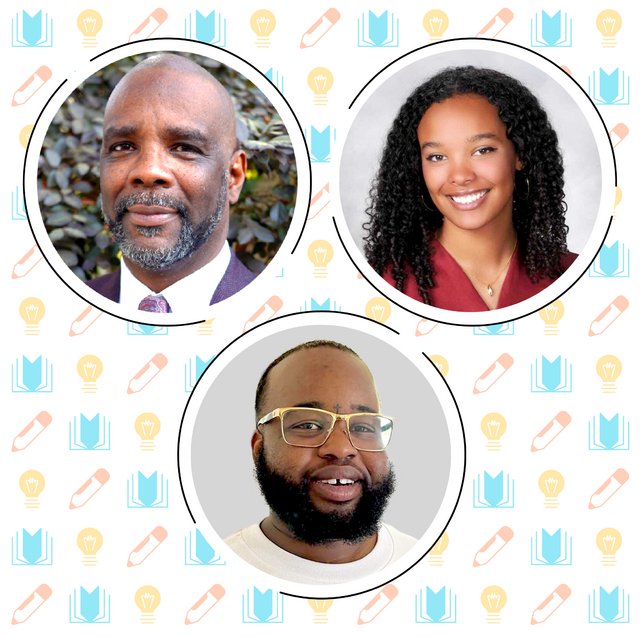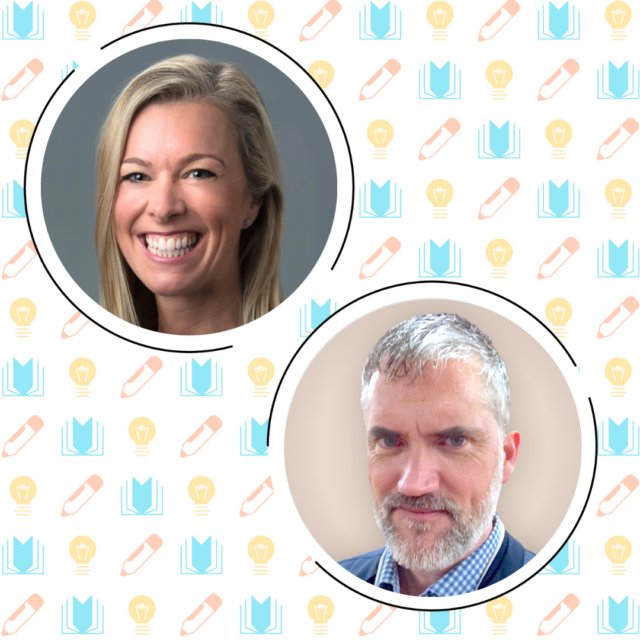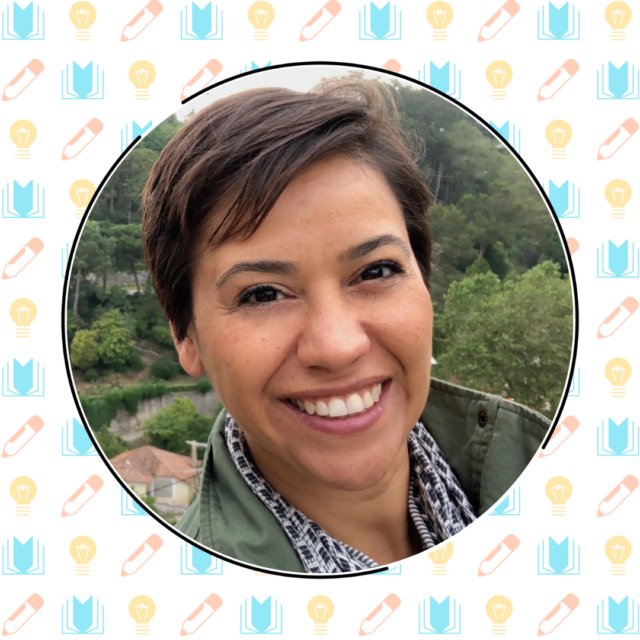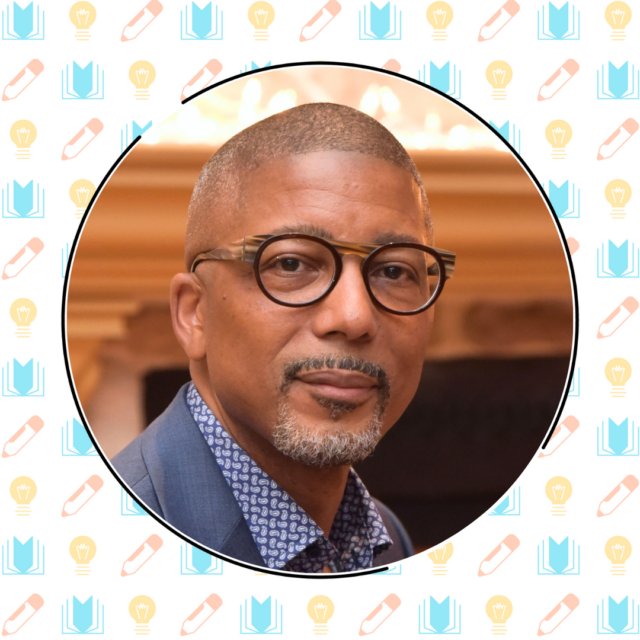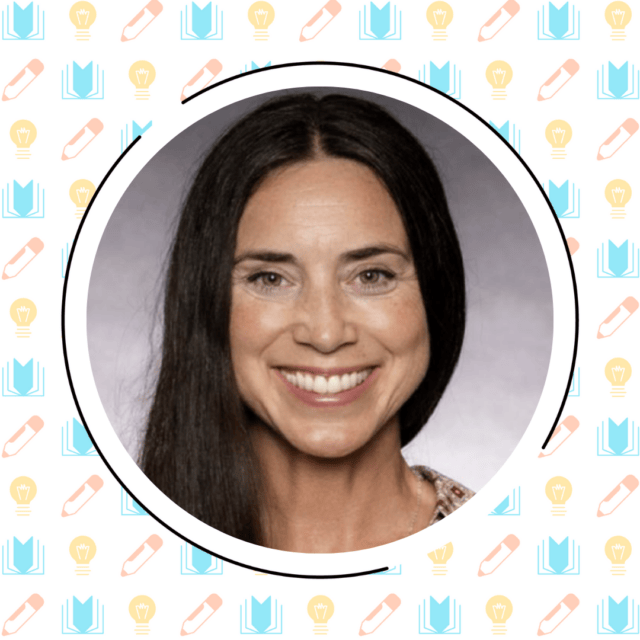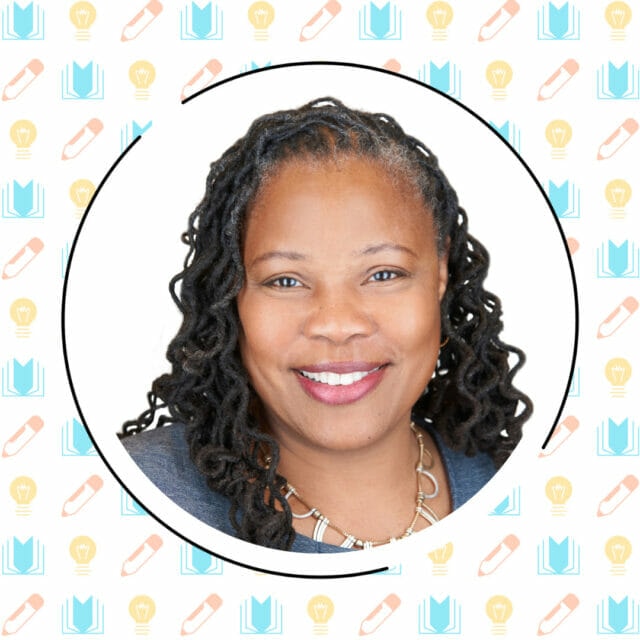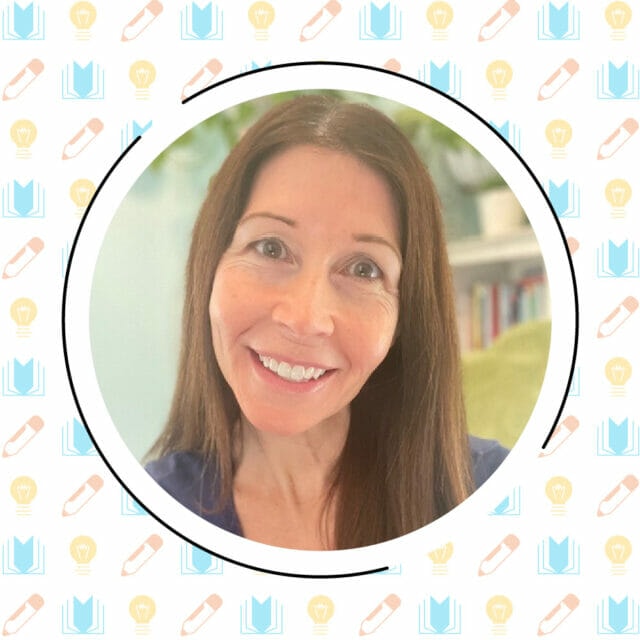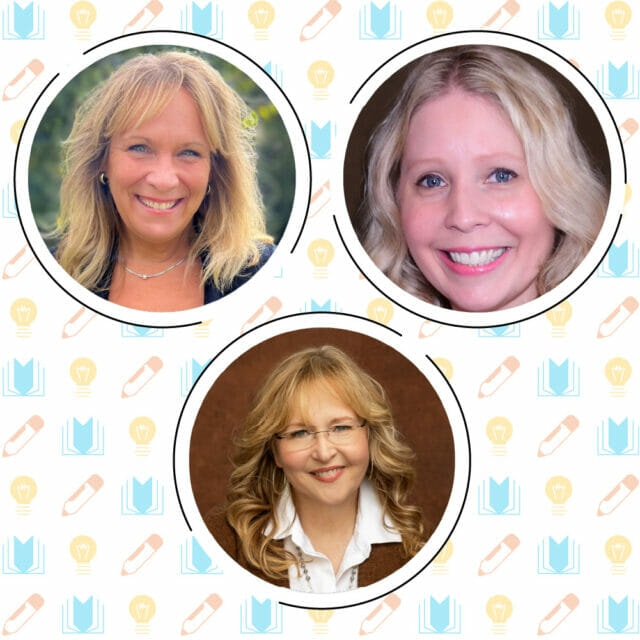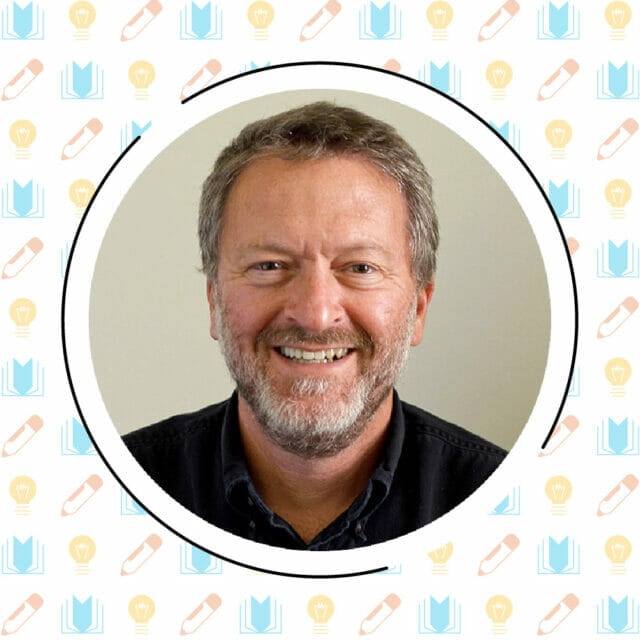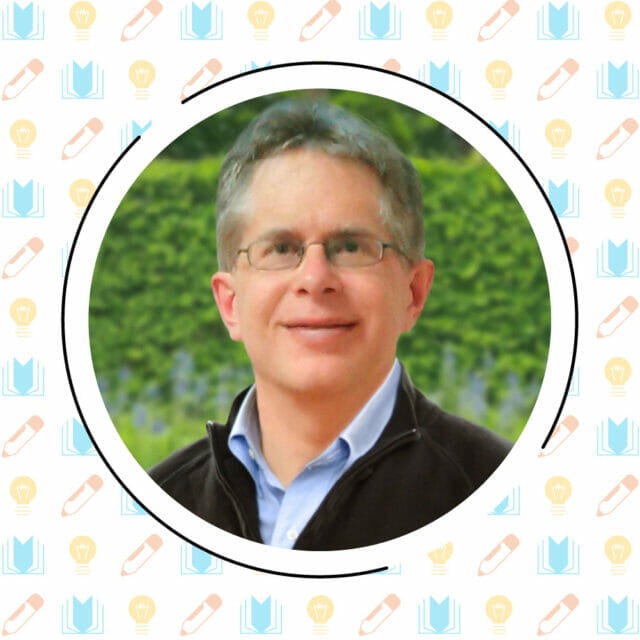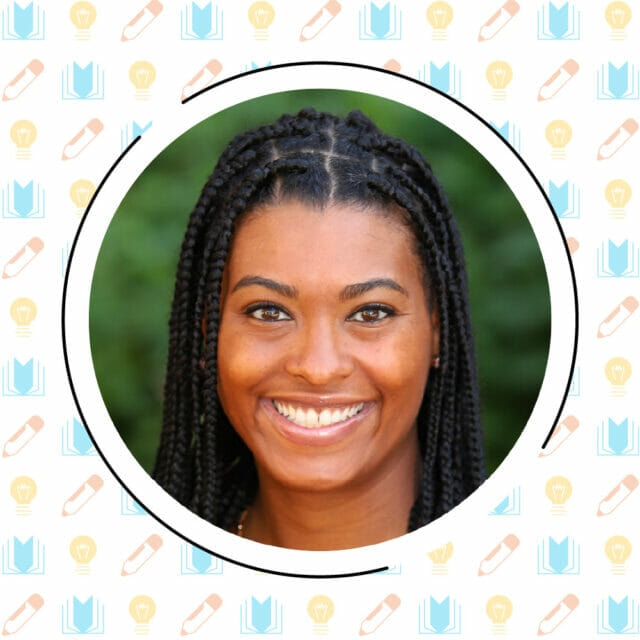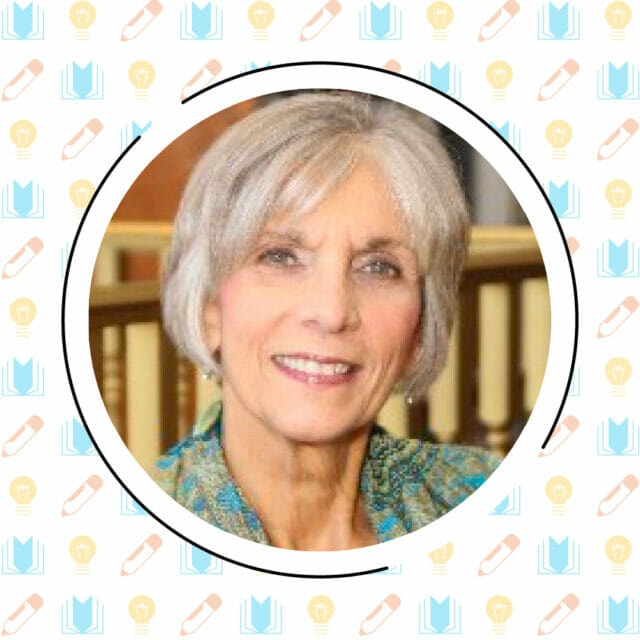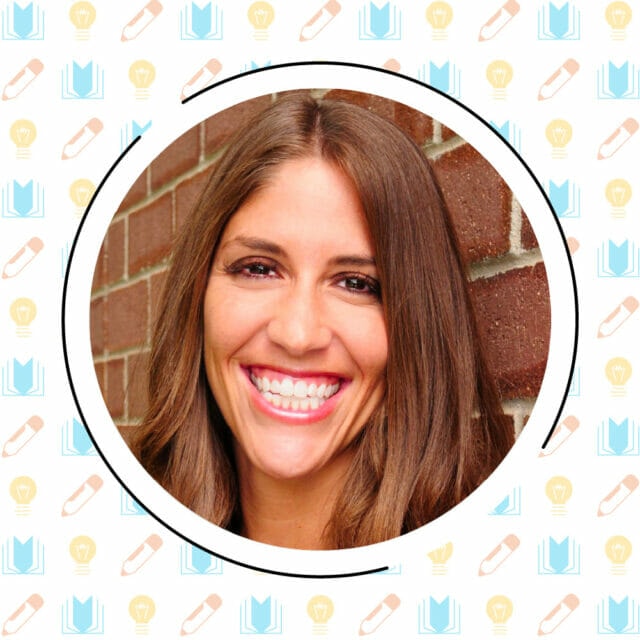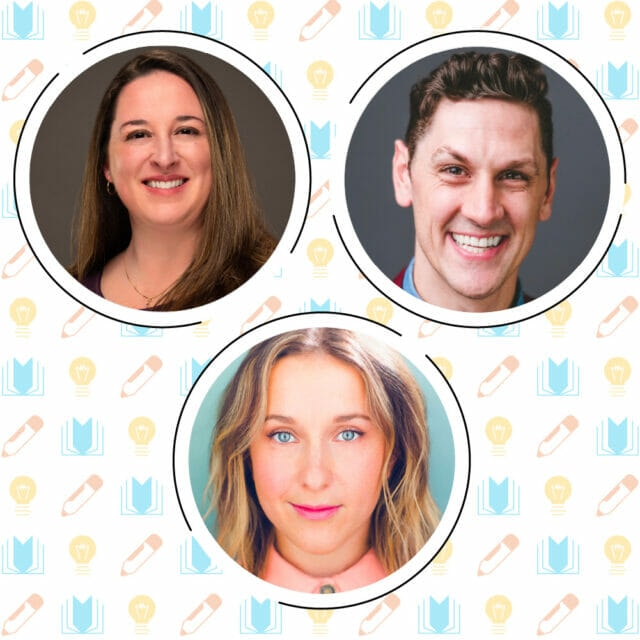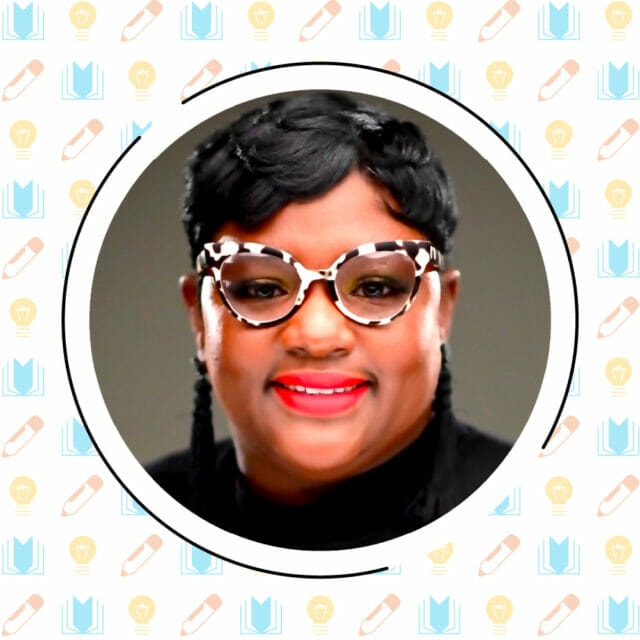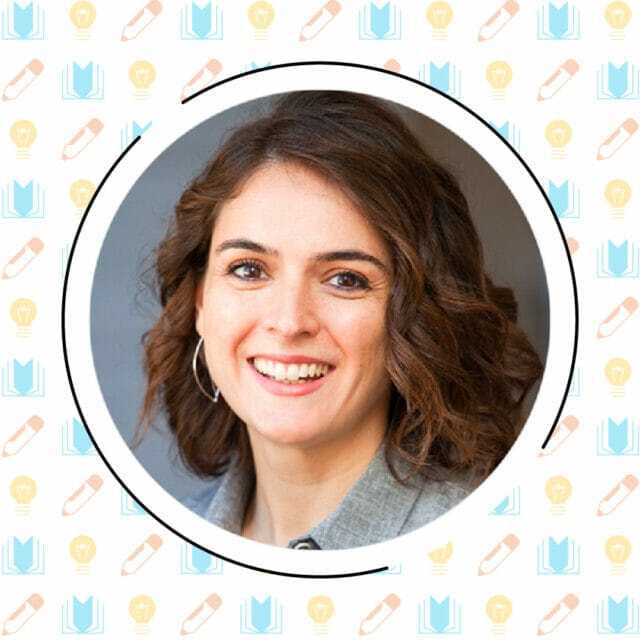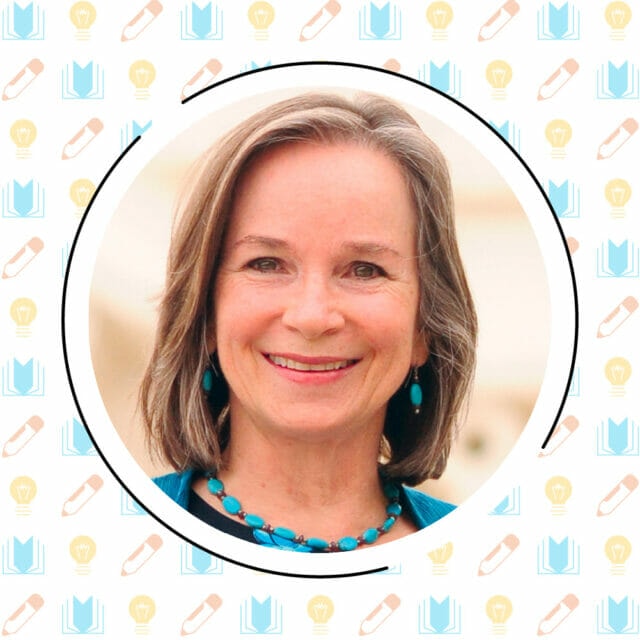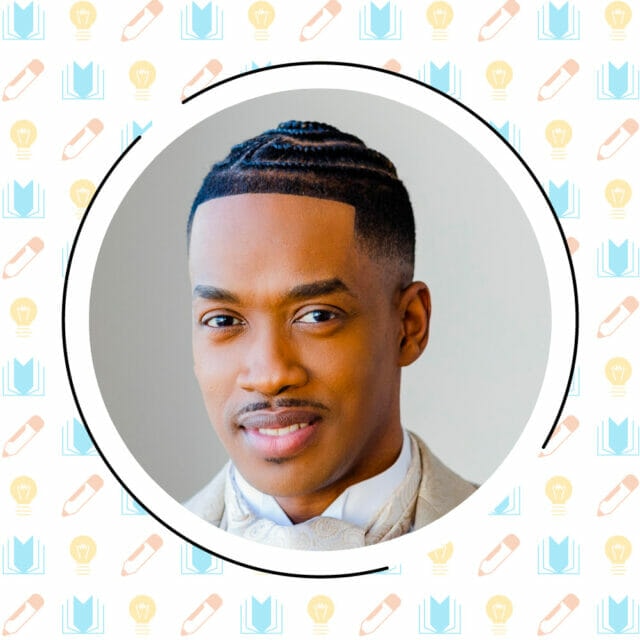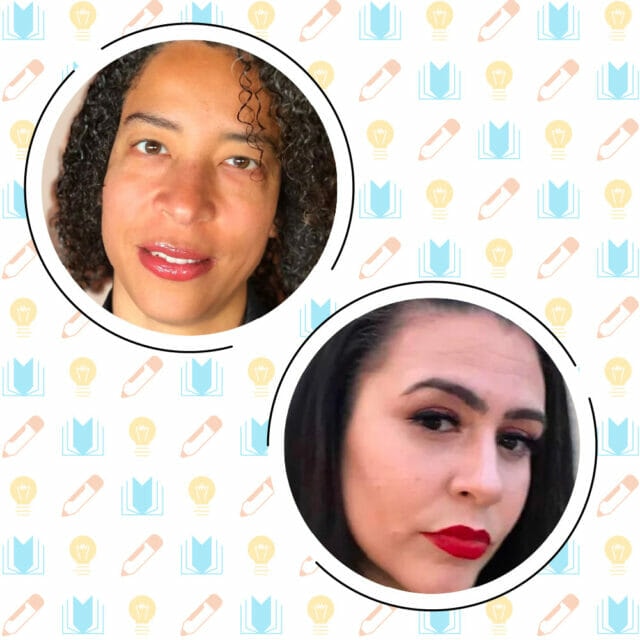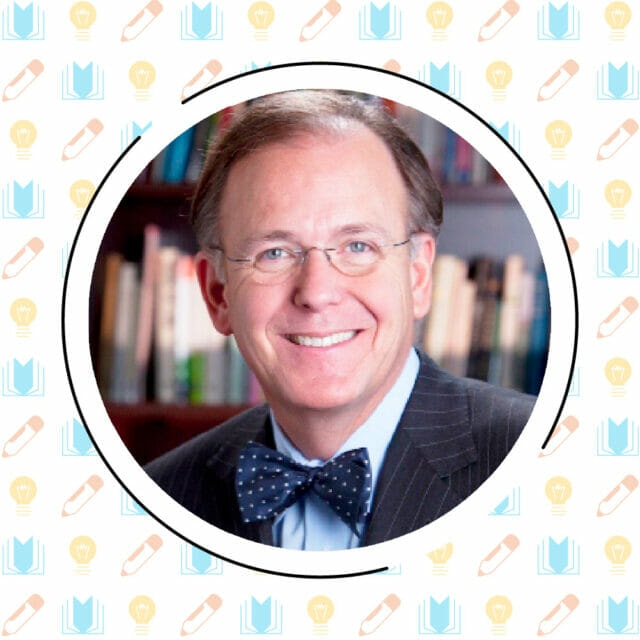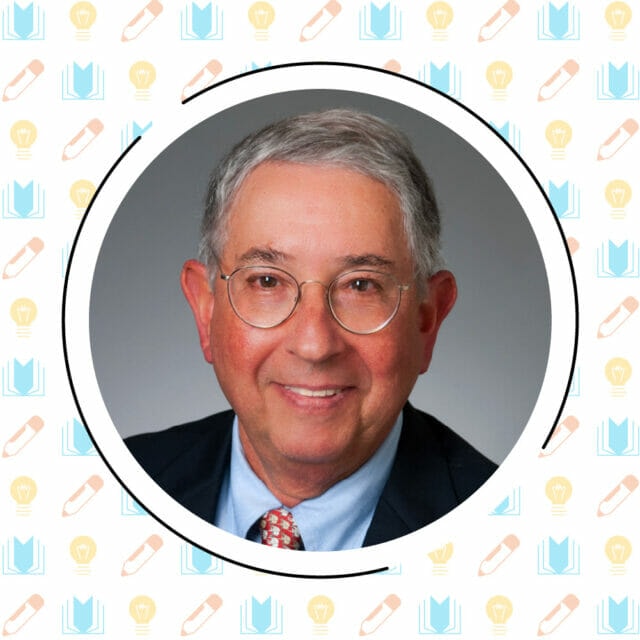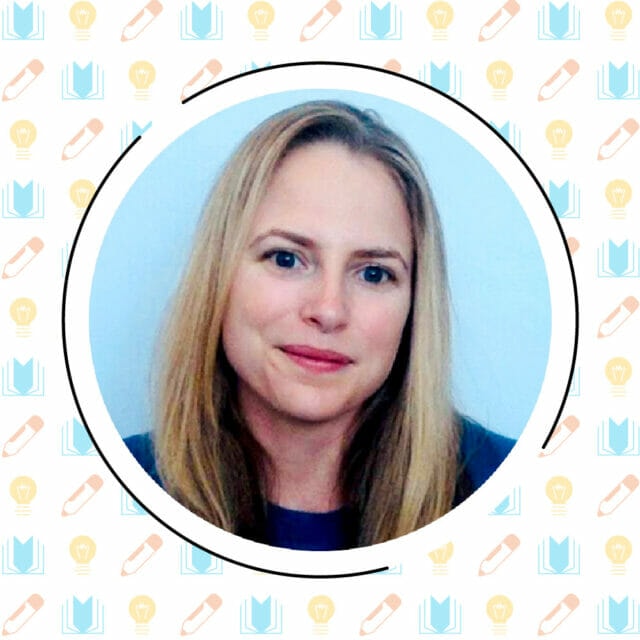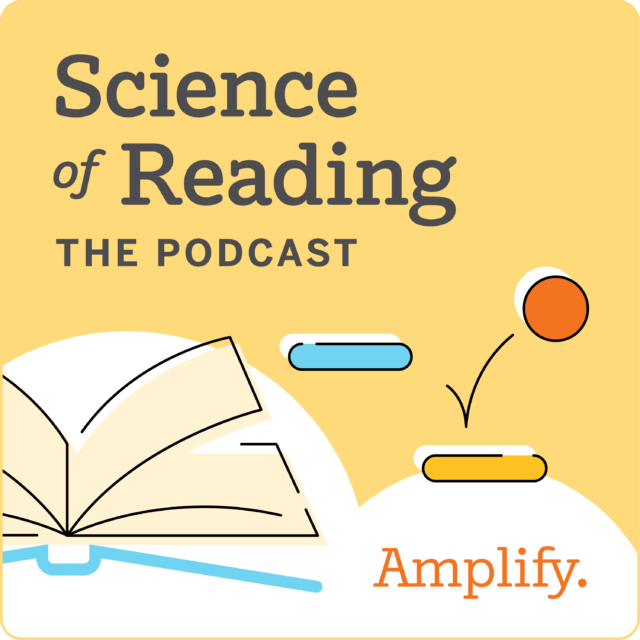
Science of Reading:
The Podcast
Science of Reading: The Podcast delivers the latest insights from researchers and practitioners in early reading. Each episode takes a conversational approach and explores a timely topic related to the Science of Reading.
Interested in connecting with other educators about the podcasts? Join our Facebook group!
 |
 |
|
 |
 |
 |
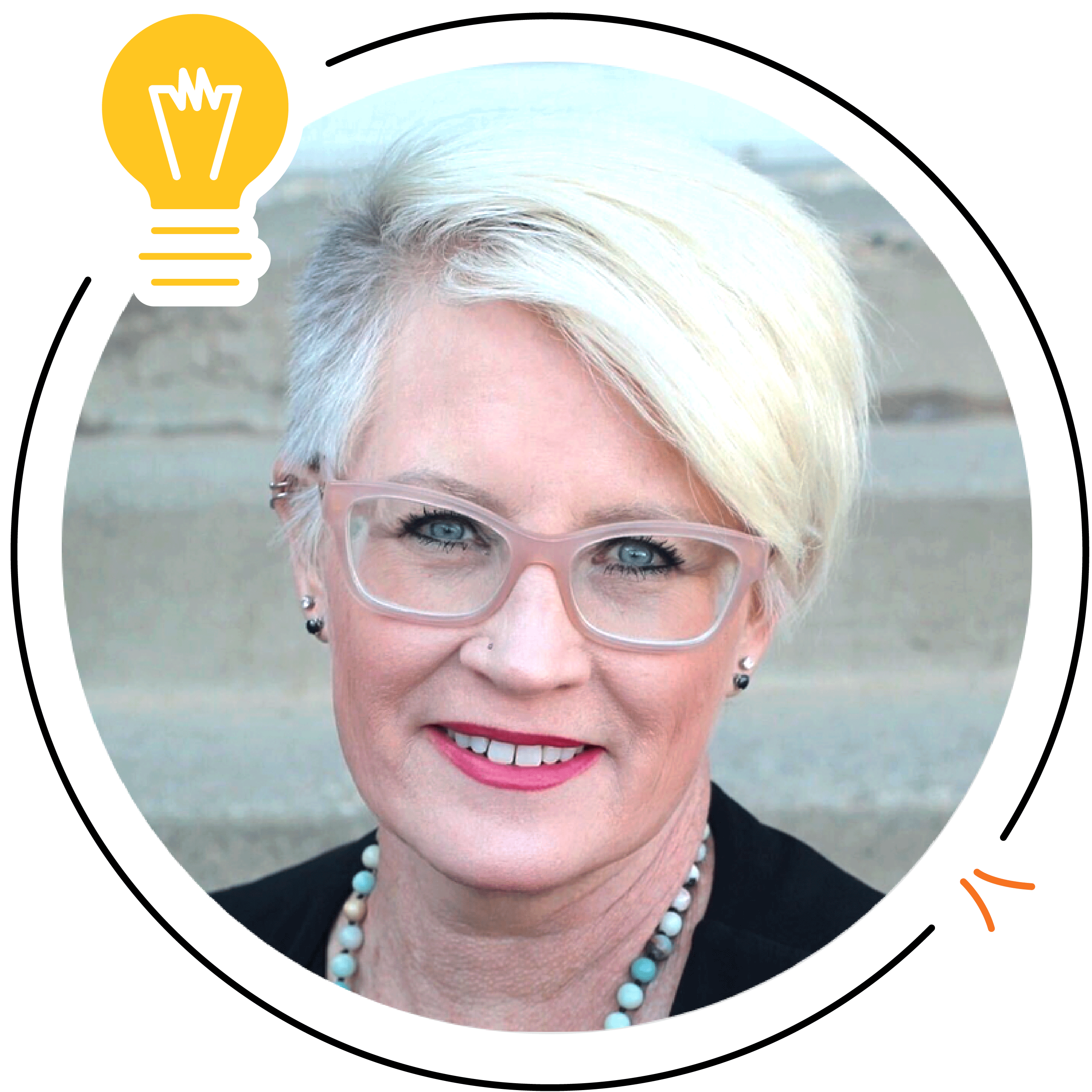
Meet Our Host: Susan Lambert
In each episode, host Susan Lambert, chief academic officer of elementary humanities at Amplify, explores the increasing body of scientific research around how reading is best taught. As a former classroom teacher, administrator, and curriculum developer, Susan is dedicated to turning theory into best practices that educators can put right to use in the classroom, and to showcasing national models of reading instruction excellence. Listen and subscribe here!
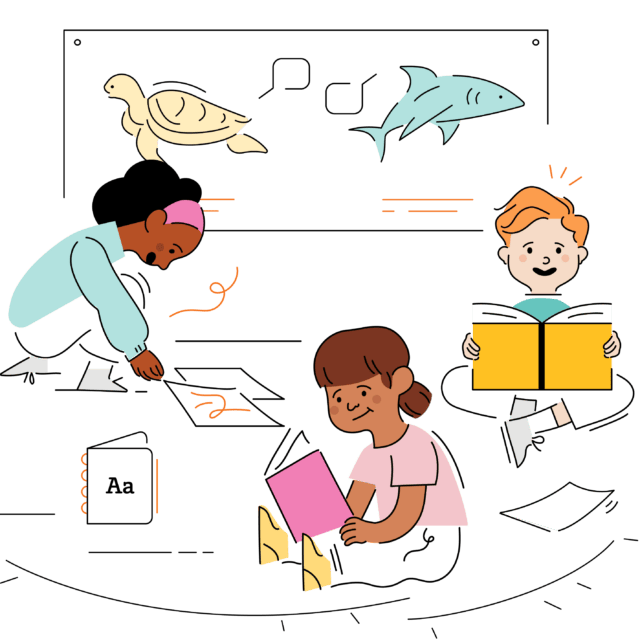
Special miniseries
This special miniseries dedicated to multilingual/English learners (ML/ELs)! Host Susan Lambert will chat with leading researchers and practitioners about how the Science of Reading supports ML/ELs and why this is so important. Through exploration of the key research and enlightening discussions, Susan and guests will discuss the optimal use of the Science of Reading to enhance students’ classroom experiences and overall learning journeys.
-
Sneak peek: A miniseries on multilingual and English learners
Science of Reading: The Podcast is launching a special miniseries dedicated to multilingual/English learners (ML/ELs)! Host Susan Lambert will chat with leading researchers and practitioners about how the Science of Reading supports ML/ELs and why this is so important. Through exploration of the key research and enlightening discussions, Susan and guests will discuss the optimal use of the Science of Reading to enhance students’ classroom experiences and overall learning journeys.
Listen to this trailer for a sneak peek, and subscribe now to make sure you don’t miss this exclusive miniseries. The first episode drops April 30!
Listen now
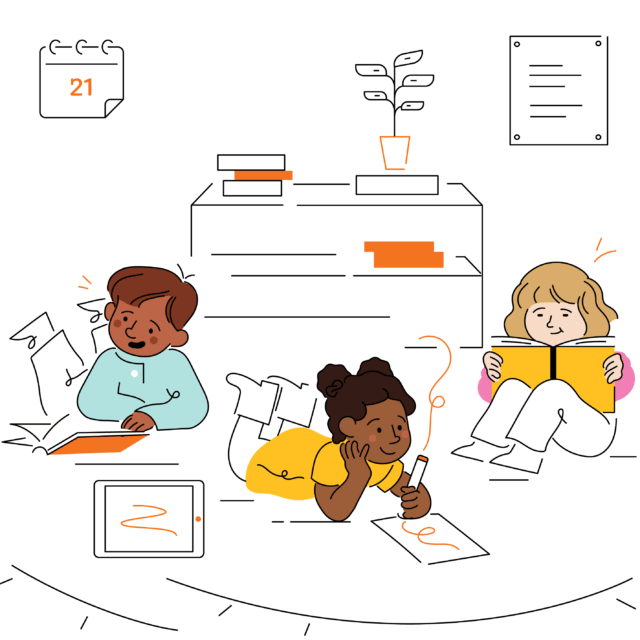
Science of Reading season 8
Join hundreds of thousands of educators already listening to Science of Reading: The Podcast to get the latest insights from researchers and practitioners in early reading. During this season, we’ll be talking all about knowledge—why it’s so critical for literacy development and student success and how it can be built most effectively.
-
Episode 14 Spring '24 Rewind: Biliteracy and assessment, with Lillian Durán, Ph.D.
Susan Lambert joins biliteracy expert and professor Lillian Durán, who holds a doctorate in educational psychology from the University of Minnesota and researches the improvement of instructional and assessment practices with preschool-aged multilingual/English learners.
Durán begins by pointing out the difference between being bilingual and biliterate, then describes the key advantages of being bilingual and the unique skills students who speak multiple languages bring to school. She then discusses how the Simple View of Reading connects to Spanish, the double standard that often occurs when bilingual students are celebrated vs. when they are not, and the process of screening and assessment for multilingual/English learner students. Lastly, Durán compels educators to avoid viewing biliteracy and dual language support as a sub-population of their classroom and instead prioritize the development of students’ home languages, whatever they may be, alongside English instruction.
Listen now -
Episode 13 Spring '24 Rewind: Deconstructing the Reading Rope: Background knowledge, with Susan B. Neuman
Join Susan B. Neuman, professor of early childhood and literacy education at the Steinhardt School at New York University, in the sixth episode of our Deconstructing the Reading Rope series. She explains the important link between background knowledge and reading comprehension in the Science of Reading, and shares her five research-based principles to build knowledge networks in literacy instruction. She also highlights the connection between speech and reading, and previews her upcoming studies on the role of cross-media connections in children’s learning.
Listen now -
Episode 12: Language and literacy, with Catherine Snow
Harvard School of Education professor of cognition and education Catherine E. Snow, Ph.D., joins Susan Lambert on this episode to reflect on the state of language and literacy instruction in the U.S. They begin their conversation discussing early literacy and linguistics, then dive into Snow’s work on the National Research Council report “Preventing Reading Difficulties in Young Children.” Lambert and Snow talk about building vocabulary, growing student curiosity in reading, and exposing students to academic language. Snow talks about the specific tools educators need for meaningful help in the classroom, shares her hopes (and fears) for the future of reading instruction in the U.S., and explains why she encourages teachers to let their classrooms be noisier.
Listen now -
Episode 11: Cognitive load theory: Four items at a time, with Greg Ashman
Greg Ashman—author of multiple books including A Little Guide for Teachers: Cognitive Load Theory, deputy principal, and professor—sits down with Susan Lambert on this episode to discuss cognitive load theory and how it applies to how students learn and how to best teach them. Together their conversation covers cognitive load theory, including an exploration of working memory and long-term memory; intrinsic load and extraneous load; biologically primary vs. biologically secondary knowledge; and how to apply these concepts in the classroom. Ashman also provides listeners with helpful advice on ensuring their teaching practices are based on evidence.
Listen now -
Episode 10: Comprehension is an outcome, with Sharon Vaughn
Sharon Vaughn, Ph.D., is an award-winning researcher and author who has advised on literacy across 30 states and 10 countries. In this episode, she joins Susan Lambert to dig into how we can build rather than just teach reading comprehension, and what it means for comprehension to be a learning outcome rather than a skill. She and Susan also touch on how to ask the right comprehension questions, how to ensure coherency in teaching background knowledge, and where it’s easy to go wrong—with knowledge building and with the Science of Reading as a whole. Listeners will walk away with a deeper understanding of which skills lead to comprehension and how to avoid strategy overload.
Listen now -
Episode 9: Knowledge building can’t wait, with HyeJin Hwang
Dr. HyeJin Hwang is an assistant professor and literacy researcher whose research interests revolve around reading comprehension and content learning in K–12 settings, particularly for multilingual students. In this week’s episode of the podcast, HyeJin Hwang talks with Susan Lambert about background knowledge (what it is, how it’s built, and more), the importance of broad knowledge, the connections between knowledge and vocabulary, and unit planning rather than lesson planning. English wasn’t Dr. Hwang’s own first language, and her research on supporting multi-language learners is informed by her own experiences learning English and later teaching English as a second language. Whether you’re just starting to establish a solid foundation on knowledge building or you’re looking to explore the topic from new angles, this episode is the one to listen to.
Listen now -
Episode 8: The plea to preserve deep reading, with Maryanne Wolf, Ed.D.
A name known throughout the literacy world, Maryanne Wolf, Ed.D., directs the Center for Dyslexia, Diverse Learners, and Social Justice at the University of California, Los Angeles. She’s published over 170 scientific articles and four books focusing on the science of the reading brain. In this episode she discusses the reading brain in a digital context and delves into some of the tensions around literacy instruction in the present moment, including the Science of Reading beyond just phonics, the plea to preserve deep reading, and literacy and screens. She also talks about the topics she’s most focused on and the ones she feels are most pressing in general when it comes to research on the brain and literacy. And she ends with an impassioned message to teachers, expressing her deep respect and gratitude.
Listen now -
Episode 7: Vocabulary is unconstrained, with Tanya S. Wright
As a writer of several books for teachers and parents, former kindergarten teacher, and current associate professor of language and literacy in the Department of Teacher Education at Michigan State University, Tanya S. Wright, Ph.D., has maintained focus on a singular question: How can we most effectively work with students in the early education setting? In answering that question, Wright has researched and written on two interesting areas: vocabulary development, and best practices for literacy development in young children. Listeners will come away from this conversation with some great tips and strategies for developing vocabulary, working effectively with younger students, and integrating writing and vocabulary.
Listen now -
Episode 6: Showing up as your full self, with Dr. Jasmine Rogers
Returning guest and recent doctoral degree recipient Jasmine Rogers, Ed.D., rejoins the podcast to discuss findings from her research on Black language and teacher perceptions of Black language. Rogers shares strategies for how educators can better serve students by allowing them to be more themselves in the classroom. She also shares some specific teacher approaches she’s observed that listeners can apply in their own classrooms. Lastly, Rogers inspires listeners with emotional stories—including her own—about educators learning and growing, and posits that starting with introspection can often have the greatest impact on the classroom.
Listen now -
Episode 5: No perfect set of words: Building vocabulary, with Margaret McKeown
This episode’s guest is Margaret McKeown, Ph.D., a retired professor from the University of Pittsburgh, decades-long researcher, and former elementary school teacher. In it, McKeown and Susan Lambert address why vocabulary is so important, particularly for knowledge building; talk about the various elements of effective vocabulary instruction; discuss the key role of informal instruction in vocabulary building; and share best practices for assessing vocabulary. Listeners will come away from this episode with a deeper understanding of the how and why of vocabulary instruction, as well as tips for bolstering vocabulary instruction in their own communities.
Listen now -
Episode 4: Brace for impact: Unifying classrooms through mission-based learning, with John Hattie
On this wide-ranging episode, Susan finally gets the chance to speak with famed education thinker and author John Hattie, Ph.D. Hattie has authored dozens and dozens of books. He’s best known for his book, Visible Learning, which now has a sequel. In this episode, he discusses his career and shares with Susan some of the biggest takeaways from his work. He also explains what meta-analysis is and discusses some of the biggest takeaways from meta-analysis in the education field, as well as the importance of implementation. And, finally, Hattie shares his thoughts on AI and the future of education. This episode offers many practical tips for educators to realign with their mission and dig into why they do what they do and how to best make an impact.
Listen now -
Episode 3: Knowledge and vocabulary: Two sides of the same coin, with Gina Cervetti
In this episode, Susan Lambert talks to Gina Cervetti, Ph.D., about literacy development, knowledge building, vocabulary expansion—and the deep connections among all three. Gina explains why she sees knowledge and vocabulary as two sides of the same coin. She also attempts to expand the listener’s understanding of what knowledge really is, it’s not just subject-area knowledge; It’s also cultural knowledge. In this process, she introduces the idea of conceptual coherence and the benefits of this approach to knowledge building, as well as avenues for implementing it in the classroom. Lastly, Gina offers strategies for how teachers can effectively build students’ vocabulary without relying on a vocabulary list, the usefulness of which has not been shown by the research.
Listen now -
Episode 2: The joy of reading aloud, with Molly Ness
Many educators understand the value of reading aloud to students, but may not yet have unlocked the full power of these tools as an intentional, consistent, and joyful instructional approach. In this episode, we welcome Molly Ness, author of the recent book, Read Alouds for All Learners: A Comprehensive Plan for Every Subject, Every Day, Grades PreK–8. Molly—a former classroom teacher who also spent 16 years as a teacher educator—gives us an overview of the research on read-alouds, detailing the myriad benefits (linguistic, socioemotional, motivational, and physiological) they provide students. Molly also lays out strategies for effective read-alouds, instructions on how to properly plan and implement them, and specific examples of the pre-work process for texts like Knuffle Bunny by Mo Willems.
Listen now -
Episode 1: Knowledge and comprehension: Never one without the other, with Reid Smith and Pamela Snow
In the premiere episode of Season 8 of Science of Reading: The Podcast, Susan Lambert is joined by guests Reid Smith and Pamela Snow to lay the groundwork for a season entirely centered on knowledge and knowledge-building. Reid and Pamela—of the SOLAR Lab at La Trobe University in Melbourne, Australia—recently co-authored (along with many others) a review of the literature on background knowledge and literacy. In this discussion, they share what they learned, including some surprising takeaways. This episode examines the complexity of building background knowledge, the important role it plays in literacy, and the reasons we’ve decided to spend a whole season exploring it!
Listen now
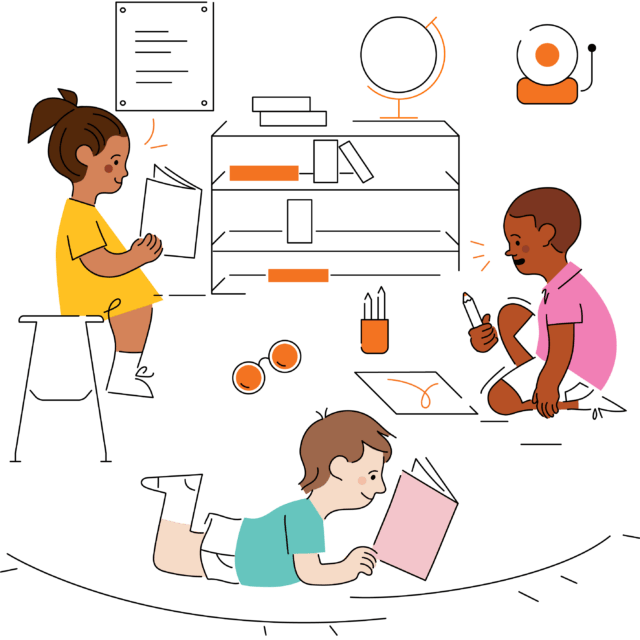
Science of Reading season 7
We know getting literacy education right is hard, and every day in the classroom brings a new set of challenges to educators. During season 7 of Science of Reading: The Podcast, Tackling the Hard Stuff, we’ll be taking on all the tough questions that come up for literacy educators—from trauma-informed teaching and writing instruction to managing small-group instruction time. We’ll also dive into how the Science of Reading connects to biliteracy, dyslexia, middle school, and more.
-
Season 7 Interlude Episode 3: Growing up with dyslexia
In this episode, in honor of Dyslexia Awareness Month, we highlight Kareem Weaver’s daughter Margo and nephew Elijah—both of whom learned they had dyslexia later in life. After many struggles in school, Margo was diagnosed with dyslexia in high school; Elijah was diagnosed with dyslexia only while he was incarcerated. Margo and Elijah discuss the impact of their diagnoses as Kareem reflects on their stories and shares lessons learned for families and caregivers. Margo and Elijah also share their advice for educators and other young people about types of dyslexia.
Listen now -
Season 7 Interlude Episode 2 (Part 2): Embracing the complexity of learning to read, with Reid Lyon
This is Part 2 of our conversation with Dr. Reid Lyon (listen to Part 1 here), one of the leading experts in reading research. After years working for and with the highest levels of the U.S. government, Dr. Lyon stepped away from working on reading research. However, in May 2023, he released his “Ten Maxims: What We’ve Learned So Far About How Children Learn to Read.” Picking up where we left off last episode, Dr. Lyon continues to expand on what we know about how children learn—and explains how much of this information was known two decades ago when he was testifying before Congress. He also goes into what he sees in the current Science of Reading landscape, what he hopes for the future, and how both of those things led to the creation of his “Ten Maxims.”
Listen now -
Season 7 Interlude Episode 2 (Part 1): Embracing the complexity of learning to read, with Reid Lyon
Dr. Reid Lyon is one of the leading experts in reading research. After years working for and with the highest levels of the U.S. government, Dr. Lyon stepped away from his reading research. But in May 2023, Dr. Lyon released his “Ten Maxims: What We’ve Learned So Far About How Children Learn To Read.” And of course Susan jumped at the chance to invite him onto the podcast. In a wide-reaching interview, Dr. Lyon traces his life story from the Vietnam War to the National Institutes of Health. He also offers an expansive overview of what we know about teaching reading, how children learn—including a discussion of whole language vs. phonics—and his response to educators wondering what reading actually is and what methodology of teaching students to read is most effective.
Listen now -
Season 7 Interlude Episode 1: Keeping up with educational research on teaching reading
With a background as a classroom teacher, a master’s in educational neuroscience, and a doctorate in special education, Dr. Neena Saha has seen all facets of education. In her work, she noticed a gap in the research-to-practice workflow for early literacy and dedicated herself to streamlining the process of finding and disseminating the best educational research for educators. Together, Susan Lambert and Neena discuss the need for reading researchers to work together and collaborate in a more focused and concerted group effort, the challenges of implementation, and how educators can best keep up with research that often feels overwhelming.
Listen now -
Episode 10: From football to phonics, with Malcolm Mitchell
Growing up, Malcolm Mitchell considered reading and academics to be a bare minimum means to get the opportunity to play football. While his journey with football led to playing in the NFL, the work he is most proud of today is his literacy work and his own journey of learning to love reading, advocating for literacy, and writing children’s books. In this conversation with Susan Lambert at the 2023 Plain Talk Conference—where Malcolm was the keynote speaker—Malcolm dives into his own process of teaching himself to become a proficient reader at the age of 19. Through the lens of his own struggles and triumphs, Malcolm shares a powerful testimony to the importance of cultural connection, access to books, community building, and understanding the true “why” behind reading to get students motivated to read.
Listen now -
Episode 9: Dyslexia: Where we started; where we’re going, with Dr. Sally Shaywitz
Here to continue our discussion on dyslexia from earlier episodes in the season is an all-time leading expert on the topic: Dr. Sally Shaywitz, co-founder and co-director of the Yale Center for Dyslexia & Creativity. This literacy legend shares how she came to study dyslexia, the story of her seminal Connecticut Longitudinal Study, and all she’s learned from her years of dyslexia research. Shaywitz will cover some of the biggest myths and misconceptions about dyslexia and also explain the “sea of strengths” possessed by people with dyslexia.
Listen now -
Episode 8: Writing your way to better reading, with Steve Graham
When it comes to literacy education and cross-domain learning, it’s critical to understand the relationship between reading and writing. In this episode, Susan talks to Steve Graham all about writing—and how it can be used to strengthen literacy. Graham served as chair of the What Works Clearinghouse Practice Guides on elementary and secondary writing, and is the current Regents and Warner Professor at Arizona State University. Together, he and Susan discuss ways to support student writing, hindrances to writing development, the importance of teaching handwriting skills, and why writing is essential to any literacy program.
Listen now -
Episode 7: Debunking the "gift" of dyslexia in children, with Dr. Tim Odegard
When we surveyed listeners, more than half of respondents said they wanted more conversations about teaching students with dyslexia. That is why Susan is joined by Dr. Tim Odegard from Middle Tennessee State University. Odegard is a professor of psychology and holds the Katherine Davis Murfree Chair of Excellence in Dyslexic Studies. As someone with dyslexia himself, Odegard brings a unique perspective to this discussion where they debunk the idea of “the gift of dyslexia,” discuss neurodiversity, and talk about what needs to be done to change the system.
Listen now -
Special Episode: Disciplinary literacy: Connecting reading and math in children's literature
From reading street signs and menus to checking the weather and using a ruler, there are so many examples of how a student’s math and literacy adventure continues beyond the classroom! That’s why we’re sharing another bonus episode—this time from our friends at Math Teacher Lounge to show the connections between math and children’s literature.
In this episode, Mathematizing Children’s Literature authors Allison Hintz and Antony Smith join Math Teacher Lounge hosts Bethany Lockhart Johnson and Dan Meyer to discuss what would happen if we were to approach children’s literature, and life, through a math lens, and how we can apply those techniques to classroom teaching.
Listen now -
Special Episode: Integrating science and literacy strategies, with Susan Gomez Zwiep
We’re excited to share a special episode from our friends at the Science Connections podcast!
Literacy learning doesn’t end when a student leaves their English class; it continues to develop, grow and be challenged across all subject domains. In this episode, we’re excited to share a special episode from our friends at the Science Connections podcast. In this episode, host Eric Cross sits down with Susan Gomez Zwiep, former middle school science teacher and senior science educator at BSCS Science Learning. She shares research that shows the benefits of integrating science and literacy strategies, tips for applying these ideas in the classroom, and what she’s learned through her own experiences.
Listen now -
Episode 6: What teachers can learn from incarcerated youth, with Hilderbrand Pelzer III
In this episode, we take on the difficult topic of literacy education in the American juvenile justice system. Susan is joined by Hilderbrand Pelzer III, who discusses his experience as an educational leader in the Philadelphia prison system. Pelzer talks about what he saw and learned—and explains why he advocates for aspiring teachers to work with incarcerated youth. This passionate and moving discussion breaks down the myths surrounding literacy’s relationship with juvenile incarceration and also leaves listeners with advice on how to become more involved in their own communities.
Listen now -
Episode 5: Science of Reading professional development, with Danielle Thompson
Susan interviews Danielle “Nell” Thompson, literacy multi-hyphenate and the creator of The Big Sky Literacy Summit. This August, the summit returns with a star-studded lineup of mentors, sages, teachers, and leaders, and in this episode, Nell shares how her own background—working with students in Alaska and Mississippi, among many other places—has helped shape this year’s conference theme. She and Susan discuss the importance of mentorship in advancing evidence-based literacy practice and literacy instruction.
Listen now -
Episode 4: Scaffolding in education is built to be temporary, with Zaretta Hammond
While in New Orleans at the Plain Talk About Literacy and Learning conference, Susan sat down with keynoter Zaretta Hammond. Zaretta shared her thoughts on the importance of scaffolding in literacy education. In this episode, Susan and Zaretta also look back on Zaretta’s impactful book Culturally Responsive Teaching and the Brain, and talk about mastery and the importance of learning how to learn.
Listen now -
Special Episode: The Right to Read: Live from Plain Talk, with Kareem Weaver
After three years and more than 3 million downloads, Science of Reading: The Podcast recently conducted its first ever taping in front of a live audience. The recording took place on March 9, 2023, in New Orleans at the Plain Talk About Literacy and Learning conference. Susan Lambert was joined by none other than Kareem Weaver, NAACP activist, whose first appearance on this podcast remains an all-time favorite among listeners. This time around, Kareem gave Susan a behind-the-scenes look at his involvement with the new film: “The Right to Read”. Kareem also offered insights into his latest work with NAACP. Plus, Kareem addressed the topic of accountability: can we make the changes we need to make when it comes to literacy instruction without holding some people accountable?
Listen now -
Episode 3: When not to differentiate: A guide to small-group instruction, with Jamey Peavler
This season is all about tackling the hard stuff, and there is no harder pill to swallow than being told by a student that you don’t know how to teach reading—especially when you realize they’re right! After this happened to Jamey Peavler, co-director in the Reading Science Graduate Program at Mount St. Joseph University, she leaned in and took the opportunity to completely rethink her approach to literacy instruction. Now, her research focuses on maximizing small-group instruction. In this episode, she’ll share her findings and her advice, as well as some best practices for small-group instruction and balancing small- and whole-group work.
Listen now -
Episode 2: The Science of Reading in the Montessori classroom, with Susan Zoll, Natasha Feinberg, Laura Saylor
For the second episode in our new season focused on tackling the hard stuff, we’re taking on a question that listeners have asked: how can we apply the Science of Reading in a Montessori setting? To help explore that question, we’re joined by the three authors of the recent book Powerful Literacy in the Montessori Classroom: Aligning Reading Research and Practice. Listen to Dr. Susan Zoll, Dr. Natasha Feinberg, and Dr. Laura Saylor as they explore the shared qualities between the Science of Reading and Montessori approach. They share tips and guidance for literacy instruction both inside and outside a Montessori setting and end with an impassioned call to educators from all approaches to come together and learn from each other for the benefit of students everywhere.
Listen now -
Episode 1: Navigating the noise, with Claude Goldenberg
Claude “Skeptic” Goldenberg, professor of education at Stanford, rejoins Susan Lambert to kick off season 7 of the podcast—all centered around tackling the hard stuff. In this week’s episode, Claude and Susan take on the topic of what is actually true when it comes to the Science of Reading and how to navigate the noise to find it! Together they discuss the opportunities and challenges of social media, “the importance of limitations of foundational skills,” and striving to maintain hope even when the journey toward success gets overwhelming.
Listen now
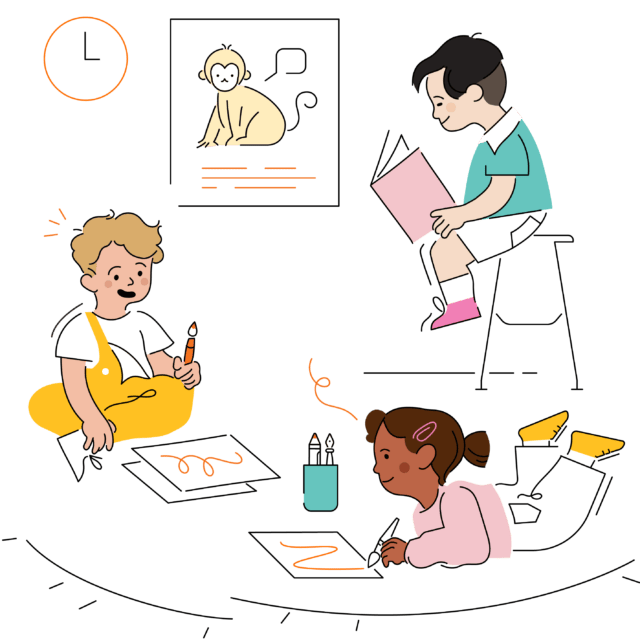
Science of Reading season 6
The podcast focuses on all levels of education. In particular, this season widens the scope to look beyond the classroom to see the complexities behind even a single student learning to read. With so many systems at work, this season gives listeners a look at national reading assessment, statewide literacy legislature, implementation science, grassroots community organization, curriculum adoption, and higher education to show that enacting change takes many hands on all levels, but ultimately starts at the same place—a passion for unlocking the world for children through literacy.
-
Episode 13: From education outsider to literacy expert, with Todd Collins
Todd Collins went from education outsider to literacy expert when he joined his local school board after a career in finance and technology. When Todd saw the literacy assessment numbers, his data-driven mind said “this isn’t good enough” and got to work. Todd went on to organize the California Reading Coalition, a movement of educators, advocates, parents, and policymakers committed to improving reading instruction and outcomes for California’s six million students. In this episode, he joins Susan Lambert to discuss what it really takes to make effective change; the importance of clear, ambitious goals and strong leadership in schools; and which numbers within literacy data are most important to focus on.
Listen now -
Episode 12: Celebrating many meanings: Language comprehension and the importance of Black English, with Jasmine Rogers
While working with students, one educator came to a realization that put her on a path to fascinating research in the Science of Reading. In this episode, Jasmine Rogers—manager and coach with the In Schools program at the DC Reading Clinic and an early literacy intervention lead at American University—shares her story and delves into her research on dialects and best practices for structured literacy instruction. She discusses Black language and how it connects with the language comprehension strand of Scarborough’s Reading Rope. Jasmine also offers recommendations for classroom teachers who have bidialectal students.
Listen now -
Episode 11: What I should have learned in college, with Donna Hejtmanek
Throughout this season, we’ve explored different tiers of the education system. In this episode, we look at the role higher education plays in equipping teachers with the right training and tools. Our guest Donna Hejtmanek, a retired special education teacher and reading specialist, shares her disappointing first-hand experience of going back to school at the age of 58—an experience that made her realize many universities weren’t training educators in the Science of Reading. Donna tells Susan the story of how she came to create the incredibly popular Facebook group Science of Reading—What I Should Have Learned in College, and discusses what it will take to change higher education.
Listen now -
Episode 10: The big win is just the beginning, with Dr. Jennifer Throndsen
With Utah’s recent passing of Senate Bill 127, a sweeping piece of literacy legislation, many are turning to the state as a model of what statewide implementation of the Science of Reading can look like. In this episode, Dr. Jennifer Throndsen, Director of Teaching and Learning at Utah State Board of Education, joins Susan to tell the story of how Senate Bill 127 came to be and how they are continuing to make changes in schools across Utah. Together, they discuss what the bill included, the opportunities and challenges the bill provides when it comes to implementation, and advice for other states looking to enact literacy legislation. Throndsen also discusses her experience as a teacher and her journey with the Science of Reading.
Listen now -
Episode 9: Lessons from a talking dog: TV’s “Reading Buddies” on making learning fun
In this episode, we take you behind the scenes of the smash hit foundational reading series The Reading League’s “Reading Buddies,” aimed at students in pre-K through third grade. Susan is joined by Andrea Dotto and Brendan Malafronte—artists, performers, and co-founders of children’s story hour and media company Dusty & Dott—as well as “Reading Buddies” executive producer Toni Ann Walsh. Together, the four of them discuss how the show started and how Andrea and Brendan got up to speed on the Science of Reading, and share tips for educators and caregivers on how to make reading instruction fun for kids.
Listen now -
Episode 8: Love at the center of literacy, with Dr. Nyshawana Francis-Thompson
Dr. Nyshawana Francis-Thompson, Deputy Chief of Curriculum and Instruction in the School District of Philadelphia, has played an integral role leading and sustaining a transition to the Science of Reading in the Philadelphia public school district. But making such a change across a large district is difficult. In this episode, Dr. Francis-Thompson (who goes by Dr. Ny) talks with Susan about Philadelphia’s experience. She also talks about her own experience learning about the Science of Reading, and offers tips to other district-level leaders and wisdom about providing all students with the liberation that comes through reading and leading—all with love at the center.
Listen now -
Episode 7: The how and why behind high-quality instructional materials, with Rebecca Kockler
As the former chief academic officer at the Louisiana Department of Education, Rebecca Kockler made it her mission to empower districts to select higher quality materials. This involved a thorough and rigorous curriculum review, and allowing teachers to choose the program they wanted once they knew exactly what they were getting. This work built Kockler’s case for focusing on quality curricula as a vital part of student success. Using Kockler’s work in Louisiana as a case study, this episode shows why state governments should focus on logistics, procurement, and equipping educators with the information they need to make the best decision for their students.
Listen now -
Episode 6: Leading legislative change, with state Senator Mimi Stewart
Mimi Stewart is a state senator from New Mexico and previously worked as a public school elementary special education teacher for thirty years, with an expertise in reading literacy. Her unique background has turned into a passion for and a history of championing educational policies as a legislator. This episode focuses on how state government and state legislation can work to improve literacy instruction. She takes us through the process of creating a piece of literacy legislation, New Mexico Senate Bill 398, which passed in 2019. Sen. Stewart also shares the latest that bill and talks about what she’s now focusing on from her place in the legislature—like changing that way we teach teachers from a university level.
Listen now -
Episode 5: Leading with the head and the heart: Enacting lasting literacy change, with Mitchell Brookins
Equal parts educational leader, educator, and life-long learner of reading science, Mitchell Brookins has leveraged his passion and dedication to affect change in the lives of the students and teachers he works with, as well as the many educators he has inspired online. In this episode, he opens up about the emotional journey he took—from realizing everything he’d been doing wasn’t working and that he’d never actually learned how to teach kids to read, to seeking out reading research and encountering the Science of Reading—a path that brought unparalleled transformation and success to his schools. Mitchell talks about how he is still learning and keeping students at the forefront of what he does every day, ending on a powerful story of a student who changed his life forever.
Listen now -
Episode 4: From the community, for the community: Grassroots organizing, with Naomi Peña & Akeela Azcuy
Community and education activist Naomi Peña and clinical psychologist Dr. Akeela Azcuy knew that, as moms of struggling readers themselves, they had the opportunity to advocate for not only their own children but all children. These two leaders and changemakers founded Literacy Academy Collective with the goal of one day creating a stand-alone New York City public school devoted to educating children with language-based learning disabilities as well as struggling readers. In this episode, our guests share their own families’ experiences with dyslexia, how that impacted their activism, and how listeners at home can effect grassroots change in their own communities.
Listen now -
Episode 3: Focused implementation: Doing less to do more, with Dr. Doug Reeves
Educator, researcher, author, and leadership consultant Dr. Doug Reeves joins Susan to discuss his book Building to Impact. Together, they dive into what evidence-based implementation looks like, including the importance of de-implementation. Doug also provides advice on how to define success for your school, and the ways to make it happen by focusing on one thing at a time until it becomes part of your school’s culture.
Listen now -
Episode 2: NAEP: What you’ve always wanted to know, with Chester Finn, Jr.
In this episode, we dive deep into the National Assessment of Educational Progress (NAEP), also known as the national report card. Chester Finn, Jr., author of the new book Assessing the Nation’s Report Card: Challenges and Choices for NAEP, joins Susan to discuss the NAEP assessment. Together, they unpack how it works, what it is and isn’t, and what benefits and opportunities it provides as the achievement gap continues to grow.
Listen now -
Episode 1: The other side of Scarborough’s Rope, with Margaret Goldberg
In our kick-off episode for season six, host Susan Lambert is joined by podcast alum Margaret Goldberg, the co-founder of the Right to Read Project. They discuss the new, animated Science of Reading series Brain Builders, and how this free tool can be shared directly with students and their caregivers. Importantly, Margaret also elevates the need to focus on the comprehension strand of the Science of Reading.
Listen now
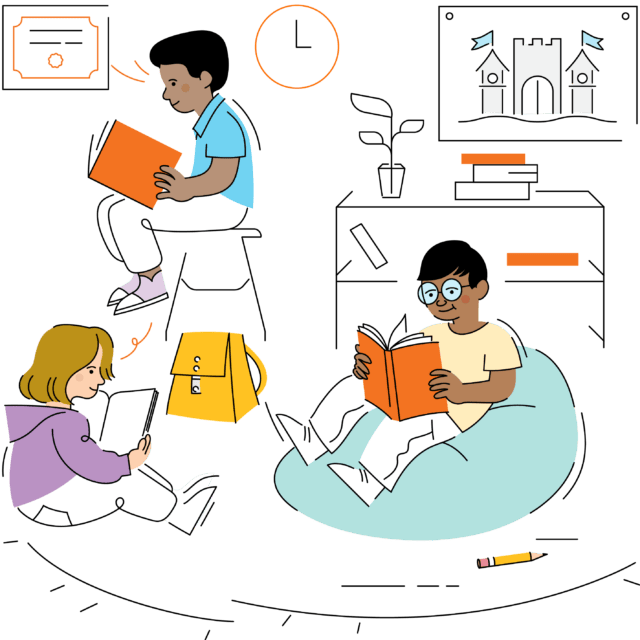
Science of Reading season 5
Tune into this season of the podcast to hear from thought leaders and researchers in the field, including Lacey Robinson, Dr. Lillian Durán, Dr. Jan Hasbrouck, Dr. Doris Baker, and Brittney Bills. You’ll learn what it means to have access to equitable education. You’ll hear about the importance of dual language assessment to make sure you’re using the best assessment for your students, and learn about the value of progress monitoring. Plus, you’ll gain an understanding of a Multi-tiered System of Supports and how it centers prevention rather than intervention.
-
Episode 14 Summer '22 Rewind: Empowering English language learners with Elsa Cárdenas-Hagan
Today, Susan Lambert talks to Elsa Cárdenas-Hagan about the challenges and opportunities in teaching reading to multilingual learners. Dr. Cárdenas-Hagan is a bilingual speech language pathologist and a certified academic language therapist. She is also director of Valley Speech Language and Learning Center in Brownsville, Texas. She discusses how teachers can connect students’ home languages to English, urges teachers to educate themselves on their students’ home languages in order to spot orthographic and phonological connections, and highlights the need for educators to collaborate to ensure student success.
Listen now -
Episode 13 Summer '22 Rewind: Myths and misconceptions about universal screening: Dr. Nancy Nelson
Dr. Nancy Nelson, assistant professor of special education at Boston University, discusses myths and misconceptions around RTI, MTSS, and assessment screening in reading and mathematics instruction. She highlights what tools need to be in place for the RTI system to be implemented well, her work on DIBELS®, and the importance of dyslexia screeners.
Listen now
-
Episode 12 Summer '22 Rewind: Research, comprehension, and content-rich literacy instruction: Sonia Cabell
Join Sonia Cabell, associate professor at the School of Teacher Education at Florida State University, as she shares findings from her research trials on content-rich literacy curricula and discusses whether activating students’ background knowledge alongside explicit phonics instruction is more effective than the traditional approaches. She also describes what constitutes “compelling evidence” in the Science of Reading and explains why students need to interact with both written and spoken language while learning to read.
Listen now -
Episode 11 Summer '22 Rewind: The symbiotic relationship between literacy and science with Jacquey Barber
Jacquey Barber, director emerita of the Learning Design Group at UC Berkeley’s Lawrence Hall of Science, joins the podcast to discuss her research on the symbiotic relationship between literacy and science, as well as what educators should be looking for in high-quality, literacy-rich science curricula. She also goes into strategies for engaging students, including the Do, Talk, Read, Write. Visualize model, then ends the episode by highlighting the many ways science supports reading.
Listen now -
Episode 10: Training the next generation of Science of Reading educators with Dr. Amy Murdoch
Dr. Amy Murdoch, assistant dean of reading science in the School of Education at Mount St. Joseph University, received her doctorate in school psychology with an emphasis in early literacy from the University of Cincinnati. In this episode, she chats with Susan Lambert about creating prominent graduate and doctoral programs in the Science of Reading, and the responsibility of training the next generation of early literacy educators. She discusses how she has seen Science of Reading interest escalate, shares her hopes for the future of reading science in schools, and offers advice for those who are new to the Science of Reading and/or exploring an advanced degree rooted in reading science.
Listen now -
Episode 9: Making every day a “wins day” with Grammy-winning educator Mickey Smith Jr.
Mickey Smith Jr. is an acclaimed Louisiana educator, author, saxophonist, Grammy Music Educator Award winner, and self-described “solutionist” who feels a strong calling to help educators. He brings his motivational blend of music and message to this special episode in which he and Susan Lambert discuss music, perseverance, and finding purpose as educators and human beings. He shares his proven principles for helping educators create sound connections and culture in today’s classrooms. He shares his methods for providing all-purpose encouragement and offers a tangible approach to finding one’s own personal mission statement—or, as he likes to call it, our legacy song.
Listen now -
Episode 8: Linguistic structure: English vs. Spanish with Dr. Desirée Pallais-Downing
Dr. Desirée Pallais-Downing is an assistant professor of instruction in the Bilingual/Bicultural Education Program at the University of Texas at Austin. Having lived in Nicaragua, England, the United States, and Spain, she has experienced bilingual learning across four different countries. In this episode, she differentiates between sequential and simultaneous bilingualism, discusses the importance of assessment in the home and second languages, and dives deep into the linguistic structures of Spanish versus English. She also offers advice for non-Spanish speakers on the best ways to support Spanish speakers.
Listen now
-
Episode 7: Unlocking change through literacy legislation with Dr. Kymyona Burk
Dr. Kymyona Burk is policy director for early literacy at the Foundation for Excellence in Education (ExcelinEd). In this role, she supports states pursuing a comprehensive approach to K–3 reading policy. She joins host Susan Lambert to give listeners a look behind the curtain of the legislative process creating education policy, including writing and passing literacy legislation, the politics of advocating for the Science of Reading within legislation, and what the results look like for states that have this legislation in place.
Listen now
-
Episode 6: Why skepticism is essential to the Science of Reading with Dr. Claude Goldenberg
Claude Goldenberg joined the podcast to introduce what he argues is much-needed skepticism to the conversation of reading science. Goldenberg mentions that while the Science of Reading may be the latest buzzword, reading science is here to stay and, like any other science, will only grow stronger alongside informed critique. He later talks about the foundational skills and what the movement can learn from the failings of Reading First; offers advice for implementation; and ends with a hopeful note, highlighting that all educators can come together around a shared mission to see students succeed.
Listen now
-
Episode 5: Implementing Multi-Tiered Systems of Supports with Dr. Brittney Bills
Susan Lambert is joined by Dr. Brittney Bills, educator and recent Science of Reading Star Award Winner to discuss MTSS. Dr. Bills began her journey as a school psychologist for six years before transitioning to the role of curriculum coordinator at Grand Island Public Schools. Dr. Bills explains what MTSS is and how it centers prevention rather than intervention. She talks about the intersection of universal screening data and MTSS and provides advice on evidence-based strategies and techniques to make a positive impact in your classroom. Using examples from her own district, Dr. Bills discusses how to avoid burnout, learning to use data, and the process of ongoing improvement.
Listen now
-
Episode 4: What bilingualism can teach us with Dr. Doris Baker
Dr. Doris Baker speaks from her background researching the academic outcomes of English language learners (ELLs) to discuss ways educators can better engage and support all of their students. Dr. Baker emphasizes how much there is to learn about our native language by learning another language, and the advantages of bilingualism. She dives into a conversation around codeswitching and the importance of cultural awareness and provides practical advice on how to include ELLs in core instruction. She also outlines how educators can include parents in their children’s language learning by teaching them how, when, and what to read to their kids—in their native language!
Listen now
-
Episode 3: The right assessment and the right data with Dr. Jan Hasbrouck
On this episode, we’re joined by literacy expert Jan Hasbrouck, Ph.D. Jan is an education consultant, author, and researcher who opens the episode talking about her start with literacy, underscoring how she was one of the lucky ones who learned how to teach reading correctly in college. She also discusses what it’s like to combat skepticism—both of the Science of Reading and the power of assessment. She then goes on to talk about the book she co-authored on student-focused coaching and ends the episode by addressing assessment anxiety directly, including a discussion of where it comes from, the importance of progress monitoring, and more!
Listen now
-
Episode 2: Biliteracy and assessment with Dr. Lillian Durán
Susan Lambert joins biliteracy expert Dr. Lillian Durán, who holds a doctorate in educational psychology and researches instructional and assessment practices with preschool dual-language learners. She describes advantages of bilingualism and the skills those students bring to school. She discusses how the Simple View of Reading connects to Spanish, the double standard of celebrating bilingual students versus not celebrating them, and the process of screening and assessment. Lillian urges educators to avoid labeling biliteracy and dual language support as a sub-group of their classroom, advising instead to prioritize the development of students’ home languages with English instruction.
Listen now -
Episode 1: The right to read with Lacey Robinson
Host Susan Lambert is joined by Lacey Robinson, CEO of UnboundEd, who opens the podcast by telling her personal story of learning to read and describing how literacy empowered her to pursue education reform. She emphasizes the responsibility that educational practitioners and leaders have to dismantle and eliminate all barriers to education, defines equity and equitable instruction, and describes the literacy experiences of Black students. She also outlines what productive struggle should look like in the classroom, encouraging educators to embrace their students’ local, cultural, linguistic, and historical context to enable more rigorous reading opportunities.
Listen now
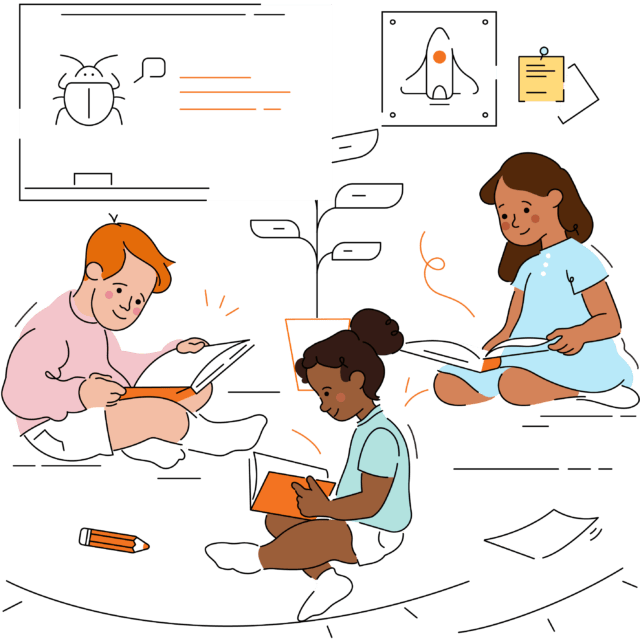
Science of Reading season 4
Check out this season of the podcast for your chance to get insights from literacy experts, including Dr. Tracy Weeden, Sue Pimental, Dr. Julie Washington, Dr. Elsa Cárdenas-Hagan, and more! Tune in for discussions around the pandemic’s effects on literacy achievement, and strategies on how to make up for lost foundational skills while progressing at grade level. Learn why learning to read in print is still pertinent, despite the digital world we live in. Plus you’ll hear about challenges and opportunities educators face when teaching bilingual students how to read. Additional topics include dyslexia and developmental trajectories, universal screening, motivating middle schoolers, and hearing directly from our Science of Reading Award winners.
-
Episode 16: Celebrating changemakers: Science of Reading Star Award winners
Today, Susan Lambert talks to our Science of Reading Star Award winners. First, we’ll meet two winners of our Amplifying Your District Award: Brittney Bills (curriculum coordinator, Grand Island Public Schools, Nebraska) and Alli Rice (elementary ELA lead, Kansas City Public Schools). Susan next talks with Anila Nayak (instructional coach and reading intervention teacher, Los Angeles Unified School District), winner of our Superstar award. Lastly, we’ll talk to Cathy Dorbish (principal, Austintown Elementary School, Ohio), who won the Standout School award for successfully shifting her school to the Science of Reading. Tune in to get inspiration and advice to take back to your classrooms!
Listen now
-
Episode 15: How to motivate middle schoolers with Kamilah Simpson
In this episode, Susan Lambert is joined by Amplify senior product specialist Kamilah Simpson, a former Title 1 middle school intensive reading teacher and instructional coach. Kamilah offers tangible advice on allowing for productive struggle so that students can learn through discovery. She also discusses how to teach with complex text and rigor, learning to scaffold, the importance of listening to text, incorporating writing practice, and supporting students without over-supporting. Finally, she stresses the importance of motivating middle school students to read by providing texts that they can see themselves and their worlds in.
Listen now -
Episode 14: What it takes to be a literacy education changemaker with Kareem Weaver
Susan Lambert chats with Kareem Weaver, award-winning teacher and administrator, about change management for educators implementing the Science of Reading. Kareem discusses what the Science of Reading is at the simplest level and why it’s important that educators are undivided in backing the research. Kareem highlights the importance of meeting educators where they are and realizing that change can’t happen if teachers aren’t given the tools and support they need first. He also calls for systemic changes to education so that teachers can do their jobs in a way that is balanced and sustainable, and ultimately benefits the students.
Listen now
-
Episode 13: Revisiting a conversation with Dr. Nancy Nelson
In this episode, we join Susan Lambert as she revisits a conversation she had during season 1 with Dr. Nancy Nelson, a research assistant professor at the Center on Teaching and Learning at the University of Oregon. They discuss myths and misconceptions around Response to Intervention (RTI), Multi-Tiered Systems of Supports (MTSS), and universal screening in reading instruction. Dr. Nelson also describes her work on DIBELS® and explains the importance of dyslexia screeners and what tools need to be in place for RTI to work well.
Listen now
-
Episode 12: A conversation on growing up with dyslexia with 10th grader Hadyn Fleming
Susan Lambert talks to 10th grader Hadyn Fleming about his experiences growing up with dyslexia. Hadyn shares his story of moving around a lot and what it took in his educational journey to feel like he had the tools and resources to be successful. He openly discusses the experiences that made a difference in his life and candidly discloses what it really feels like to have dyslexia. He shares the way that dyslexia impacts all facets of education and, conversely, how becoming a strong reader gave him increased confidence in other areas of his life. He also helps debunk dyslexia myths, and talks about how an educator’s belief in their students’ potential is essential to student success.
Listen now
-
Episode 11: Building resilience through routine, relationships, and regulation in the classroom with Ricky Robertson
Today, Susan Lambert chats with Ricky Robertson about building systems of support for students impacted by Adverse Childhood Experiences (ACEs) and their educators. Ricky is an educator, author, and consultant who has worked with alternative and traditional schools. The episode focuses first on how teachers can prioritize their own self-care and why it is essential in order to care for students. Ricky then explains what ACEs are and the ways that fight, flight, freeze, and fawn responses can manifest in the classroom. Lastly, he explains how routine and relationships can build a foundation for resilience—ending on a note of encouragement to educators that their investment is never wasted.
Listen now
-
Episode 10: What we’ve learned and the guests we’re grateful for
In this episode, we join Susan Lambert as she rewinds the tape and highlights some of the standout learning moments that have occurred throughout this season of the podcast. Guests like Sue Pimentel, Julie Washington, Nadine Gaab, and more have all taught us invaluable lessons about the Science of Reading. You’ll hear top takeaways from each of their episodes as they cover topics such as literacy accelerators, learning to read digitally versus in print, teaching reading to multi-language learners, dialectical variety, and so much more.
Listen now
-
Episode 9: Dyslexia and developmental trajectories with Dr. Nadine Gaab
Dr. Nadine Gaab joins Susan Lambert to discuss dyslexia and brain development, and their affects on student learning behavior. Dr. Gaab, Associate Professor of Education at the Harvard Graduate School of Education, focuses on typical and atypical learning paths from infancy to adulthood. She has a special emphasis on language and reading development and the role of the environment in shaping these paths. Dr. Gaab provides insight on early intervention for at-risk students. She clarifies early diagnosis of dyslexia versus early identification of at-risk students and explains how educators can ensure that all students experience the joy of learning to read.
Listen now
-
Episode 8: Empowering multilingual learners with Elsa Cárdenas-Hagan
Elsa Cárdenas-Hagan joins Susan Lambert to discuss challenges and opportunities in teaching reading to multilingual learners. She is a bilingual speech language pathologist and a certified academic language therapist. She is also director of Valley Speech Language and Learning Center in Brownsville, Texas. She explains how teachers can connect students’ home languages to English in order to honor their language and use new tools to help them understand English, and stresses the importance of learning about students’ home languages in order to spot orthographic and phonological similarities and differences. Lastly, she explains how important educator collaboration is for students’ success.
Listen now
-
Episode 7: Linguistic variety and dialects: Difference, not error with Dr. Julie Washington
Dr. Julie Washington joins Susan Lambert to discuss linguistic variety and dialects as difference, not error, and how to best support all students as they learn to read. Dr. Washington is a professor in the School of Education at the University of California, Irvine (UCI) and a speech language pathologist. She offers practical advice for educators teaching reading to children who don’t use general American English, discusses how to do so in a way that respects students’ community languages, reminds educators that students rise or fall to the expectations set for them, and encourages educators to embrace language variety and incorporate it into the development of successful readers.
Listen now
-
Episode 6: Educator voices: Personal journeys through the Science of Reading with Lindsay Kemeny
Susan Lambert is joined by second-grade teacher Lindsay Kemeny for a conversation about her journey of discovery with the Science of Reading. Lindsay discusses how she processed her shock and guilt at realizing she’d never been taught how to properly teach reading. She shares the journey she took as a mother and an educator when her son was diagnosed with severe dyslexia alongside depression, and discusses how that inspired her to dive into what is needed for good literacy instruction and what students with learning disabilities need. Listeners will also hear stories from additional educators from across the country about how the Science of Reading has transformed their classrooms.
Listen now -
Episode 5: Reading as liberation with Sue Pimentel
In this episode, Sue Pimentel—co-founder of the nonprofit StandardWorks, founding partner of Student Achievement Partners, and lead author of the Common Core State Standards for ELA—joins Susan Lambert to discuss her new report “Reading as liberation—an examination of the research base.” Sharing key insights, she expands on her findings about personalization, literacy accelerators, and implementation, and discusses how mutual respect between student and teacher is key to reading success.
Listen now
-
Episode 4: Learning to read digitally vs. in print with Dr. Lauren Trakhman and Dr. Patricia Alexander
Susan Lambert sits down with Lauren Trakhman and Patricia Alexander, professors from the Department of Human Development and Quantitative Methodology in the College of Education at the University of Maryland, College Park, to discuss their research on the effectiveness of teaching reading in print versus digitally. Their conversation explores the ways in which teaching reading in print remains vital even in a digital world. Lauren and Patricia explain why it’s important to avoid making assumptions about students’ abilities to use technology, and describe how that can be a detriment to reading success. They also discuss ways to use technology to boost children’s foundational skills.
Listen now
-
Episode 3: Learning disabilities and their emotional impact with Dr. Sheila Clonan
This episode features Dr. Sheila Clonan discussing her work with identifying learning disabilities (particularly dyslexia) in children. Sheila also explores the mental and emotional effects of learning to read with dyslexia and how it impacts behavior and self-concept, providing two insightful analogies that illustrate what it feels like for students who aren’t given explicit instruction but are still expected to know how to read. She then ends the episode with practical advice for educators and parents on how to support and encourage children.
Listen now
-
Episode 2: Ensuring literacy success for all with Dr. Tracy Weeden
Dr. Tracy Weeden, CEO and president of the Neuhaus Education Center, joins host Susan Lambert to discuss ensuring literacy success for all. She shares what it means to be a literacy ally, explains what the “COVID Chrysalis” is, and discusses how teachers need to bridge the gap between the language students learn in school and the language they bring from home.
Listen now
-
Episode 1: Applying the Science of Reading at any grade level with Laura Cusack
Kicking off season 4, Susan Lambert hosts this special episode with Laura Cusack, executive director of K–8 ELA strategy at Amplify. This dynamic duo sheds light on the pandemic’s effects on literacy achievement and strategizes how to make up for lost foundational skills while keeping students moving forward in grade-level learning. They also urge educators to make it a point to honor the diverse experiences of their students during reading instruction.
Listen now
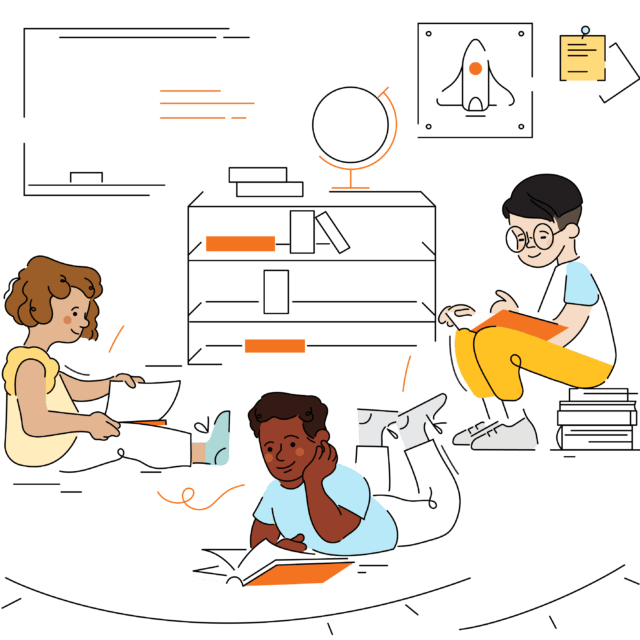
Science of Reading season 3
Tune into this season of the podcast to hear from leading experts in the field, such as Dr. Jane Oakhill, Alice Wiggins, Dr. Louisa Moats, Natalie Wexler, Dr. Susan Neuman, and others! You’ll explore Scarborough’s Reading Rope and each of the strands it’s composed of, including word recognition, decoding, sight recognition, language structures, background knowledge, language comprehension, and vocabulary. You’ll also increase your knowledge of the Science of Reading and learn how you can make the shift to it in your classroom or entire district.
-
Episode 13: Deconstructing the Rope: A look back at season 3
Join your host, Susan Lambert, as she recaps our season 3 Deconstructing the Rope series. She highlights the special guests we’ve had this season such as Louisa Moats, Bruce McCandliss, and Sonia Cabell and shares their expert insights on Scarborough’s Reading Rope. From vocabulary to word and sight recognition, all strands will be covered in this special episode that will help you cement this knowledge in your Science of Reading journey!
Listen now -
Episode 12: Fostering accessible instruction for all with DeJunne’ Clark Jackson
Join DeJunne’ Clark Jackson, vice president of program development for the Center for Development and Learning, as she underscores how to overcome barriers in the delivery of accessible instruction to students. She also urges listeners to recognize and confront bias both inside and outside of the classroom in order to foster better experiences for educators and students. Finally, she leaves us with an anecdote on diversity, equity, and inclusion and speaks on the connection between the Science of Reading and dyslexia.
Listen now -
Episode 11: Continuously improving literacy instruction with Alana Mangham
Join Alana Mangham, literacy specialist for the Center for Development and Learning, as she shares her pathway from educator to changemaker in the Science of Reading field. She’ll also highlight her successful four-part literacy plan and urge you to question your instructional practices to better foster reading achievement in children today.
Listen now -
Episode 10: Deconstructing the Rope: Language structures with Kate Cain
Join Kate Cain, professor of language and literacy at Lancaster University, in the latest episode of our Deconstructing the Rope series as she explores language structures in the Simple View of Reading and explains its connections across reading comprehension in literacy development. She also highlights the reciprocal relationship between books and conversation and underscores the importance of reading aloud to children from a young age to develop their vocabulary and semantics.
Listen now -
Episode 9: Deconstructing the Rope: Vocabulary with Nancy Hennessy
Join Nancy Hennessy, past president of the International Dyslexia Association, in the latest episode of our Deconstructing the Rope series in which Nancy defines the role of vocabulary and elaborates on the nuanced structures of comprehension in literacy instruction. She also highlights how to explicitly teach vocabulary to students through her research-backed, four-pronged approach.
Listen now -
Episode 8: Deconstructing the Rope: Language comprehension with Sonia Cabell
Join Sonia Cabell, assistant professor at the School of Teacher Education at Florida State University, in the latest episode of our Deconstructing the Rope series as she unwinds language comprehension, a strand of Scarborough’s Reading Rope. Sonia explains the true definition of language comprehension in relation to the Simple View of Reading and highlights the role of parents and educators in the use of advanced language models in literacy development. She also reflects on the impact of the COVID-19 pandemic on teachers and families and discusses how it has highlighted the importance of education today.
Listen now -
Episode 7: A Defining Movement: The Reading League on the Science of Reading with Dr. Maria Murray
In this special episode, Dr. Maria Murray, president and CEO of the Reading League, analyzes the intricacies of literacy instruction and shares common misconceptions educators have about the Science of Reading. She also explains why the Science of Reading: A Defining Movement coalition was founded—on a belief in establishing clear understandings of what the Science of Reading is, and what it is not, to promote the proper use of instructional practices aligned with its findings.
Listen now -
Episode 6: Deconstructing the Reading Rope: Background knowledge with Susan Neuman
Join Susan Neuman, professor of childhood and literacy education at the Steinhardt School at New York University, in the sixth episode of our Deconstructing the Reading Rope series as she explains the important link between background knowledge and reading comprehension in the Science of Reading and shares her five research-based principles to build knowledge networks in literacy instruction. She also highlights the connection between speech and reading, and previews her upcoming studies on the role of cross-media connections in children’s learning.
Listen now -
Episode 5: Deconstructing the Rope: Sight recognition with Dr. Bruce McCandliss
Join Dr. Bruce McCandliss, professor at the Graduate School of Education of Stanford University, in the fifth episode of our Deconstructing the Rope series as he explains the role of sight and word recognition in the Science of Reading and highlights the importance of the rapid integration of print, speech, and meaning. Bruce also encourages listeners to be cognizant of the ever-changing, technological learning environment while nurturing young readers and writers.
Listen now -
Episode 4: Plain talk: Making the shift to the Science of Reading in your district
Join leading experts Natalie Wexler, Ernesto Ortiz, Dr. Carolyn Strom, and Susan Lambert for a podcast on making the shift to the Science of Reading. In this special episode, they discuss how educators can implement the Science of Reading through an incremental change on all levels, from a classroom to entire districts. Sharing their research and both professional and personal experiences, the panelists share the leadership knowledge, training, and curriculum advice you’ve been looking for.
Listen now -
Episode 3: Deconstructing the Rope: Decoding with Louisa Moats
Join Dr. Louisa Moats, president of Moats Associates Consulting, in the third episode of our Deconstructing the Rope series as she highlights the significance of decoding in the Science of Reading and discusses the value of becoming students of our own language. She also mentions the reciprocal relationship between decoding and encoding and why both are essential to provide effective phonics instruction to children in the classroom.
Listen now -
Episode 2: Deconstructing the Rope: Word recognition with Alice Wiggins
Join Alice Wiggins, vice president of instructional design and products at UnboundEd, in the second episode of our Deconstructing the Rope series as she unwinds word recognition, a strand of Scarborough’s Reading Rope. Alice also highlights the importance of explicit phonics instruction and urges listeners to advocate for an aligned curriculum to bring forth a systematic and equitable approach to reading for all students.
Listen now -
Episode 1: Deconstructing the Rope: An Introduction with Dr. Jane Oakhill
Dive into our first episode as Dr. Jane Oakhill, professor of experimental psychology at the University of Sussex, gives a high-level overview of Scarborough’s Reading Rope. She also emphasizes the importance of inferencing in comprehension, explains why the Simple View of Reading is still relevant almost 40 years later, and describes how each element of the rope comes together to deconstruct the complexity of reading.
Listen now

Science of Reading season 2
Tune into this season of the podcast to hear from educational thought leaders such as Dr. LaTonya Goffney, Afrika Afeni Mills, Dr. Sonia Cabell, Dr. Tim Shanahan, Dr. Danielle Damico, and more! You’ll hear real-world stories on adopting a new early literacy curriculum, including challenges and successes, as well as how schools benefited from analyzing the student data they received. Presenters will discuss the evolution of reading and the history of the Science of Reading. And you’ll learn how the pandemic is affecting at-risk students and those in need of intervention.
-
Episode 9: Unveiling insights from assessment data with Danielle Damico
Join Danielle Damico, director of learning science at Amplify, as she explores the impact of the pandemic on at-risk students and those in need of intervention. She shares the insights drawn from DIBELS® 8th Edition and highlights how data is now more important than ever in understanding where students are—whether assessments are administered in person or through a digital platform. Finally, she leaves our listeners with best practices to nurture readers moving forward and ensure growth and success through the end of the year.
Listen now -
Episode 8: Behind the scenes of the National Reading Panel with Tim Shanahan
One of our most popular guests, Tim Shanahan, returns! In our most recent episode, he reminisces about the creation of the National Reading Panel in 1997 and the release of its subsequent groundbreaking report. He highlights how reading instruction has evolved and discusses how new research seems to be changing the landscape of the “reading wars” he thought were settled long ago.
Listen now -
Episode 7: Research, comprehension, and content-rich literacy instruction with Sonia Cabell
Join Sonia Cabell, assistant professor of education at Florida State University, as she shares findings from her research trials on content-rich literacy curricula and whether activating students’ background knowledge alongside explicit phonics instruction is more effective than traditional approaches. She also explains what constitutes “compelling evidence” in the Science of Reading and why students need to interact with both written and spoken language while learning to read.
Listen now -
Episode 6: Fostering growth and instructional change with Kelly Moran
Join Kelly Moran, curriculum supervisor of Chardon Local Schools in Ohio, as she shares her journey of implementing a curriculum based around the Science of Reading. Hear about the steps her district took to reshape literacy instructional practices and about the challenges they faced along the way. Find out how the fostering of reading achievement in students renders all efforts worthwhile.
Listen now -
Episode 5: The Right to Read Project on nurturing automatic readers with Margaret Goldberg and Alanna Mednick
Join Margaret Goldberg and Alanna Mednick from the Right to Read Project as they address the Science of Reading and its translation into easy practice for educators. They break down the Seidenberg and McClelland Four-Part Processing Model and explain how it relates to the Simple View of Reading. They also reflect on how educators should approach reading as scientists and be ready to teach in a way that may be uncomfortable for a time—the labor-of-love stage of literacy instruction.
Listen now -
Episode 4: Telling the fuller story with Afrika Afeni Mills
Join Afrika Afeni Mills—diversity, equity, and inclusion director of BetterLesson—as she reflects on race, culture, and identity in education. She’ll shed light on the significance of integrating students’ schemas to nurture language comprehension in early literacy, discuss the difference between asset- and deficit-based teaching, and highlight the impact “windows and mirrors” have on students’ classroom experiences.
Listen now -
Episode 3: The Reading League and the Science of Reading with Maria Murray and Pamela Snow
In our first international episode, join The Reading League CEO and President Maria Murray and La Trobe University professor of cognitive psychology Pamela Snow as they reflect on the long history of the Science of Reading. They’ll explain the true definition of “the Science of Reading” and explore why this knowledge has not been translated for the practitioners that need it the most—teachers. Our guests will also discuss the pandemic’s silver lining: the opportunity to reflect on instructional practices and how to best support educators and students now and in the future.
Listen now -
Episode 2: Reflecting on past literacy experiences: Justin Pita and Tamara Morris
Join Amplify interns Justin Pita, undergraduate at the University of Pennsylvania, and Tamara Morris, alumna of Stanford University, as they share their reading journeys. They highlight the major disparities and barriers that affected their academic experiences. They also reflect on how action must be taken by caregivers and educators to ensure that all students have access to equal opportunities for achievement in literacy, so that no student gets left behind.
Listen now -
Episode 1: Confronting the data with Dr. LaTonya Goffney
Join Dr. LaTonya Goffney, Superintendent of Schools for Aldine Independent School District in Texas, as she recounts her two-year journey with her team of district educators to adopt a new early literacy curriculum. Hear how they successfully challenged the traditional adoption process, studied the science of teaching reading, analyzed student data and experiences, and developed a district-wide set of beliefs and expectations.
Listen now

Science of Reading season 1
Check out this season of the podcast to hear from literacy experts on their research and insights in the field. Our guests will discuss dyslexia development, the importance of reading comprehension and the challenges that come with it, as well as the research behind how students learn to read. Don’t miss out on learning about the growing role of technology in the classroom and the importance of dual language instruction. These Season 1 presenters will inspire you and change how you think about literacy.
-
Episode 28: A look back at season one
Join us in reflecting on season one and preview what’s in store for an exciting season two. In this special episode, we revisit the highlights of season one, with key clips from Emily Hanford, Natalie Wexler, Ernesto Ortiz, David and Meredith Liben, and Shawn Joseph, and other moments that inspired us and changed how we think about literacy.
Listen now -
Episode 27: Fostering relationships between parents and educators with Dr. Catherine Barnes
Join Dr. Catherine Barnes, CEO of Sudden Impact Solutions and leader of the Black Parents Support Network, as she addresses the shortcomings of the educational system in underserved communities during the pandemic, the need to overcome parents’ perceptions of educator judgment, and the ways educators can foster relationships with parents to ensure continuous learning for students during these trying times.
Listen now -
Episode 26: The basic science in reading instruction with Daniel Willingham
Author and University of Virginia psychology professor Daniel Willingham discusses the “reading wars” (and mischaracterizations among their factions), the importance of understanding basic science to teach reading, and the variations in implementation of the Science of Reading in literacy instruction across districts.
Listen now -
Episode 25: Aligning digital learning and the Science of Reading with Doug Lemov
Doug Lemov, author and managing director of Uncommon Schools, discusses the role of technology in the classroom and remote instruction, how educators should reconsider how they approach literacy, and his experience reconstructing a reading curriculum for this next phase of digital learning while holding true to the values of the Science of Reading.
Listen now -
Episode 24: The silent crisis with Shawn Joseph
Educator, author, and leader Shawn Joseph shares his passion for social justice and discusses his work advocating for equity in education, shedding light on what he calls the silent crisis in literacy instruction. In this episode, you’ll hear about his experience as a former superintendent of several large urban districts and learn how he fostered achievement in all of his students.
Listen now -
Episode 23: Improving dual language instruction with Elizabeth Jiménez Salinas
Multilingual author and expert Elizabeth Jiménez Salinas and host Susan Lambert discuss advocating for underrepresented English learners (EL), improving dual language instruction, and learned passivity. Elizabeth shares tips for EL students during this time and reinforces the importance of home connection and language development.
Listen now -
Episode 22: Success using the Science of Reading with Mary Clayman
Susan Lambert is joined by Mary Clayman, director of the District of Columbia Reading Clinic, who shares her experience founding one of the first graduate clinical practicums sponsored by a public school system, discusses how it influenced the training of DCPS teachers, and celebrates the success of students in early literacy using the Science of Reading.
Listen now -
Episode 21: The symbiotic relationship between literacy and science with Jacquey Barber
Jacquey Barber, director of design & development at UC Berkeley’s Lawrence Hall of Science, discusses her research on the symbiotic relationship between literacy and science and what educators should be looking for in high-quality, literacy-rich science curricula.
Listen now -
Episode 20: Evidence-based solutions and tackling unfinished learning with David and Meredith Liben
David and Meredith Liben, nationally recognized reading experts and authors of Know Better, Do Better, discuss their need to find evidence-based solutions, the importance of knowledge and skills instruction, and how to tackle unfinished learning in schools.
Listen now -
Episode 19: The Simple View of Reading with Laurence Holt
Laurence Holt, language acquisition expert and author of the Learning to Read primers, joins host Susan Lambert to discuss the Simple View of Reading, how the brain rewires itself to learn to read, and the importance of background knowledge in language comprehension.
Listen now -
Episode 18: Using innovation to inform teaching with Larry Berger
Larry Berger, CEO of Amplify, discusses the use of innovation and technology to inform teaching and learning, his new initiative called Wide Open School, and how we can step back and let this be a time of joy and creativity for kids that enables them to discover a love of reading.
Listen now -
Episode 17: Etymology of the English language with Freddy Hiebert
Dr. Elfrieda “”Freddy”” Hiebert, author and founder of the Text Project, shares insights from her research on vocabulary, the etymology of the English language, and the importance of teaching morphology to enable kids to make connections.
Listen now -
Episode 16: Leading a district adoption with Jared Myracle
Jared Myracle, chief academic officer of the Jackson-Madison County School System in Tennessee, shares his district’s experience in adopting the Science of Reading and navigating the change-management process. He stresses the importance of high-quality instructional materials and implementation fidelity.
Listen now -
Episode 15: A principal on the shift to the Science of Reading with Ernesto Ortiz
Ernesto Ortiz, principal at an elementary school in Pennsylvania, discusses how to understand when materials are meaningfully “research-based,” how his school made the shift to the Science of Reading, and how he is supporting his students with remote learning resources to continue their literacy development at home.
Listen now -
Episode 14: Maximizing our educational reach via technology with David Steiner
Susan Lambert and David Steiner, professor and executive director of the Institute for Education Policy at Johns Hopkins University, examine how school closures are impacting learning across the nation, how districts are responding to the rapidly changing environment, and why maximizing our educational reach via technology should be a priority.
Listen now -
Episode 13: Science of Reading special episode: Remote learning
We’ve been thinking a lot about you—and our hearts go out to you during this confusing and uncertain time. Helping our students continue to learn in this unusual and unsettling situation is not easy. And here at Science of Reading: The Podcast, we want to do what we can to support you.
Listen now -
Episode 12: Neuroscience and early literacy with Dr. Bruce McCandliss
Susan and Dr. Bruce McCandliss, professor in the Graduate School of Education at Stanford University, chat about combining neuroscience with education. How does neuroscience help us understand the changes going on in the brain of a child learning to read? Why do some children struggle so profoundly? He shares his research into focusing students’ attention on letters and sounds versus on whole words.
Listen now -
Episode 11: The Science of Reading in middle school with Jasmine Lane
Jasmine Lane, a high school English teacher, discusses the importance of equity and education and the disconnect between how teachers feel and what they need to do to push education forward for all students, regardless of their background. She also shares how education has changed her life, how her students have been impacted by their early literacy teachers, and how high schoolers fill in the gaps for things they missed early on.
Listen now -
Episode 10: Myths and misconceptions about universal screening with Nancy Nelson
Dr. Nancy Nelson, research assistant professor at the Center on Teaching and Learning at the University of Oregon, discusses myths and misconceptions around RTI, Multi-Tiered System of Supports (MTSS), and universal screening in reading instruction.
Listen now -
Episode 9: The cognitive science behind how students learn to read with Carolyn Strom
Carolyn Strom, professor of early childhood literacy and innovation at New York University, discusses her research and interviews with pre-school teachers and how students learn to read, as well as her view on the Science of Reading and the cognitive science behind it all. She shares her insights on the importance of neuroscience and culturally responsive teaching, and dives into Linnea Ehri’s four phases of learning how to read.
Listen now -
Episode 8: Evidence-based literacy practice in the classroom with Tim Shanahan
Literacy expert and author Tim Shanahan discusses his views on teaching reading in middle school as an extension of evidence-based early literacy practices. What are some of the challenges and what should reading instruction include? Tim and host Susan Lambert dive into the many ways to boost comprehension; discuss how the English language is always changing; and explain how to structure reading instruction across content areas such as history, science, and math so students are equipped to comprehend those texts as well.
Listen now -
Episode 7: The missing link in reading comprehension with Anne Lucas
What is the missing link in reading comprehension? Anne Lucas, former curriculum director and current product manager of Amplify Reading, discusses the multifaceted nature of comprehension and why it’s so difficult to teach, shares a teacher’s powerful “”eureka! moment,”” and explains the specific sentence-level skills that improve overall comprehension.
Listen now -
Episode 6: The facts and myths of dyslexia with Emily Lutrick
Emily Lutrick, a PreK–5 curriculum and dyslexia coordinator with almost 20 years of experience in education, examines the facts and fictions of dyslexia. She discusses how early is too early to screen for dyslexia, and how to identify the signs and risk factors. Then, Susan and Emily explore how dyslexia relates to the Science of Reading and what educators and parents can do to help students after school.
Listen now -
Episode 5: Connecting confidence in school and literacy development with Lois Letchford
Lois Letchford, author of Reversed: A Memoir, shares her personal accounts of her son’s struggle with learning how to read, as well as her own when she was in school with dyslexia. After being told by a teacher that her son was “the worst child [she’s] ever seen in [her] 25 years of teaching,” Lois persisted to help her son—and even began writing poems to pique his interest in reading. What is he doing now? Was she successful?
Listen now -
Episode 4: The importance of fluency instruction with Tim Rasinski
Susan and Tim Rasinski, author of The Megabook of Fluency: Strategies and Texts to Engage All Readers, discuss Tim’s work at the reading clinic at Kent State University, the aspects of good fluency instruction, what constitutes fluency, and how reading speed is correlated to word recognition and automaticity. Tim stresses the importance of fluency and finding ways to be artful while teaching reading.
Listen now -
Episode 3: Reporting on education and the Science of Reading with Emily Hanford
Susan sits down with education reporter and host of the Education Post podcast Emily Hanford to discuss her takeaways from reporting on dyslexia and the patterns that emerged in her investigation; the Science of Reading, and why schools don’t align with it more; theories of how reading works; and the evolution of balanced literacy, phonics, and whole-language instruction.
Listen now -
Episode 2: Background knowledge and education reform with Robert Pondiscio
Robert shares his inspirations and emphasizes the need to acknowledge the different places and backgrounds that students come to school from, and how this affects their language trajectory. Susan and Robert also discuss the latest in education reform, as well as the knowledge gap, how it’s only going to get larger as kids move through grades, the limited time we have to correct it, and how to start doing so.
Listen now -
Episode 1: The Knowledge Gap with Natalie Wexler
What’s broken in our education system? Natalie joins Susan for a provocative talk about her latest book, The Knowledge Gap, and how a knowledge-based curriculum can bring equity into the classroom—and students’ futures.
Listen now -
Episode 0: About Science of Reading: The Podcast
Welcome to Science of Reading: The Podcast! We bring educators the latest insights from researchers and practitioners in early reading. We believe equity in education begins with reading science.
Listen now
Resources
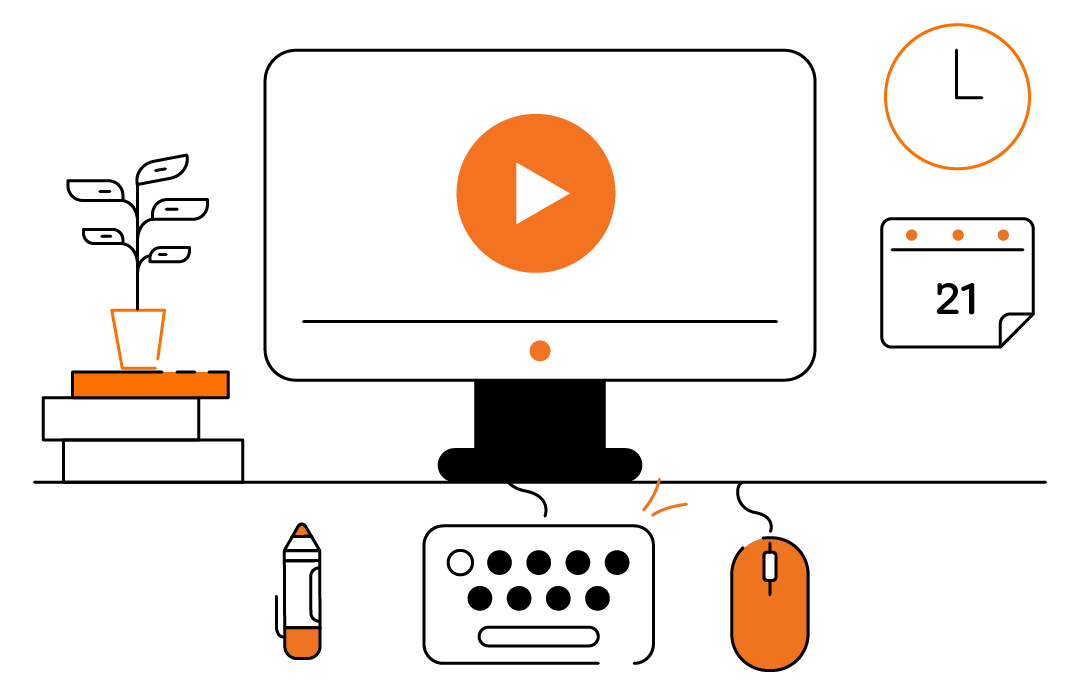
Science of Reading Webinar
Discover how the Science of Reading is for everyone! All students—from bilingual learners to middle schoolers to your most confident young readers—benefit from...

Science of Reading Toolkit
Research shows that bilingual instruction supports the long-term success of dual language learners in literacy, and beyond. Bilingualism itself is a cognitive s...
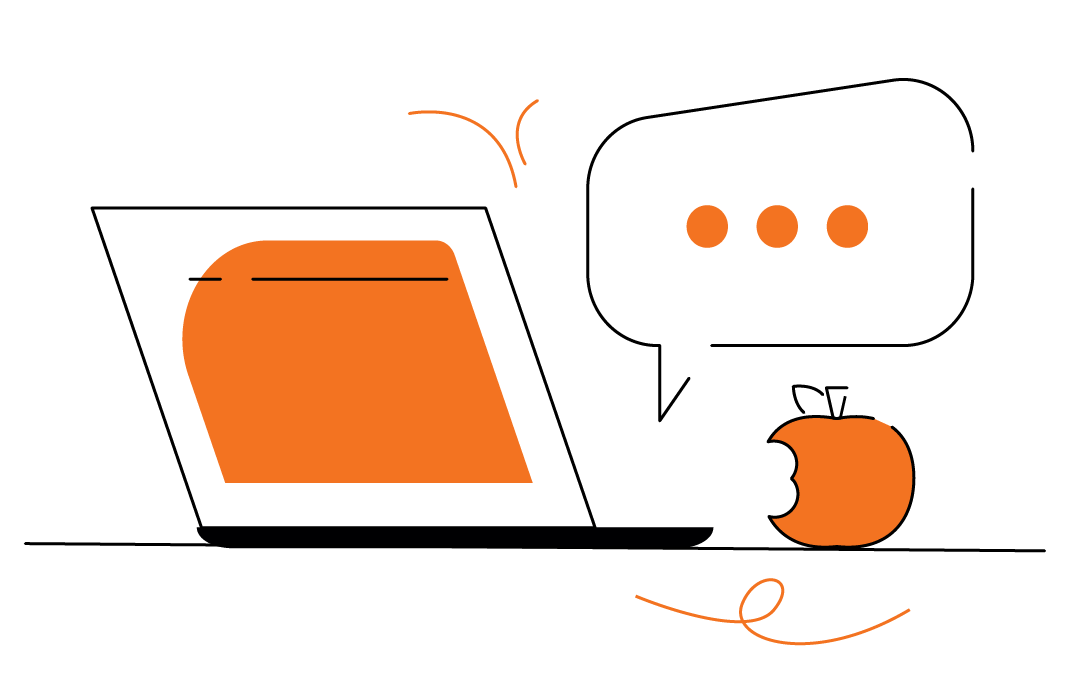
Science of Reading Facebook Community
Join the conversation and connect with more than 90,000 educators in our Facebook group, Science of Reading: The Community, who are giving their all to bring th...
Subscribe now
